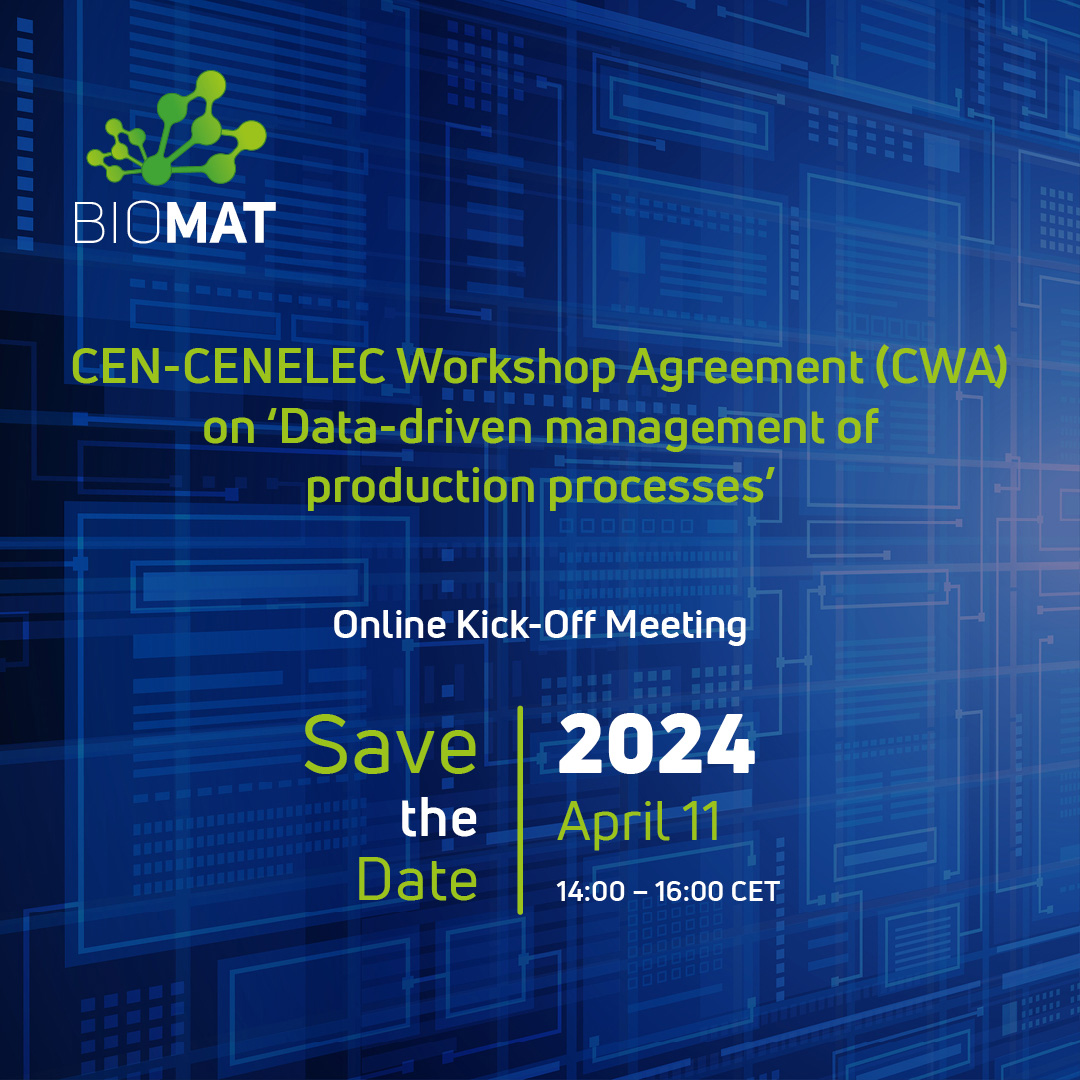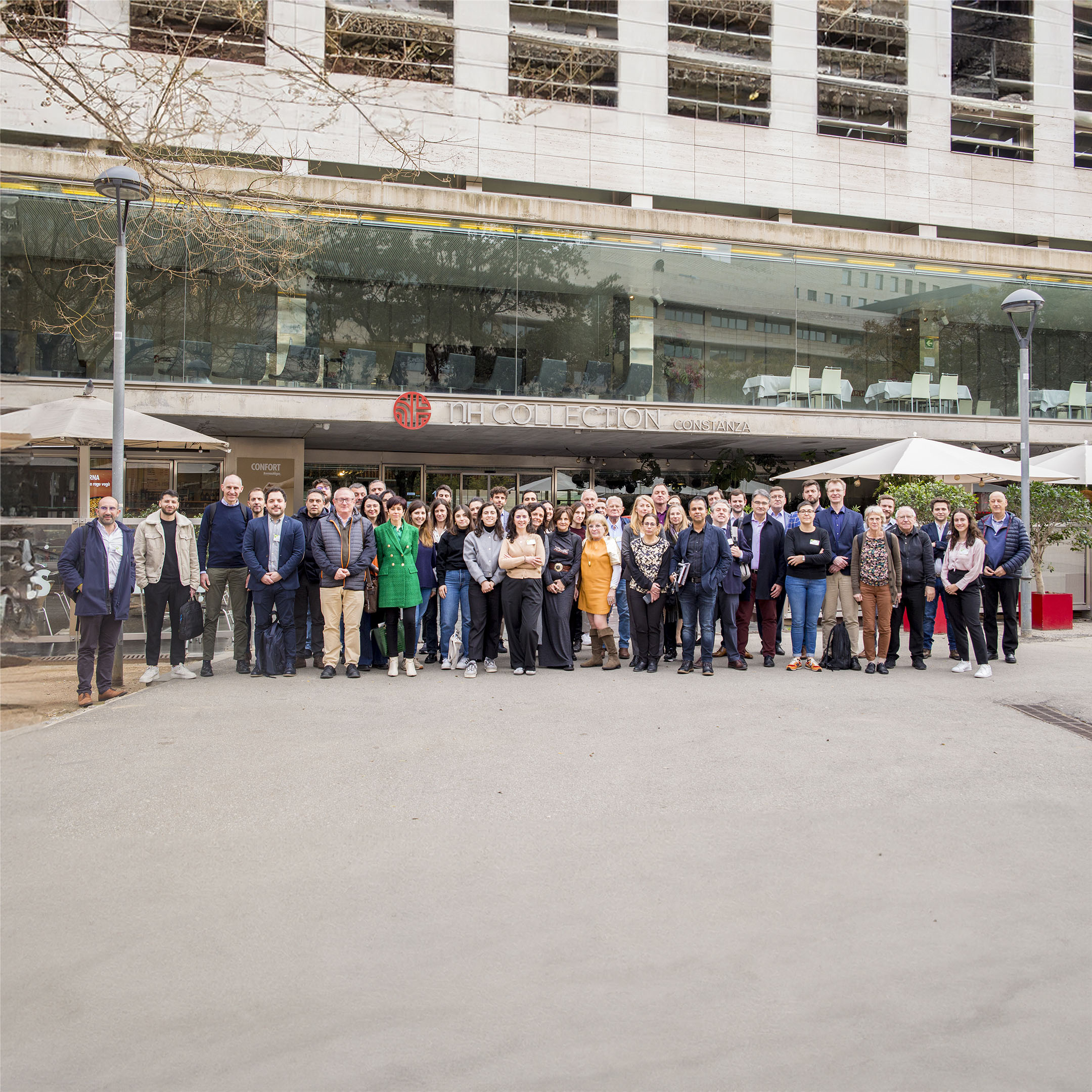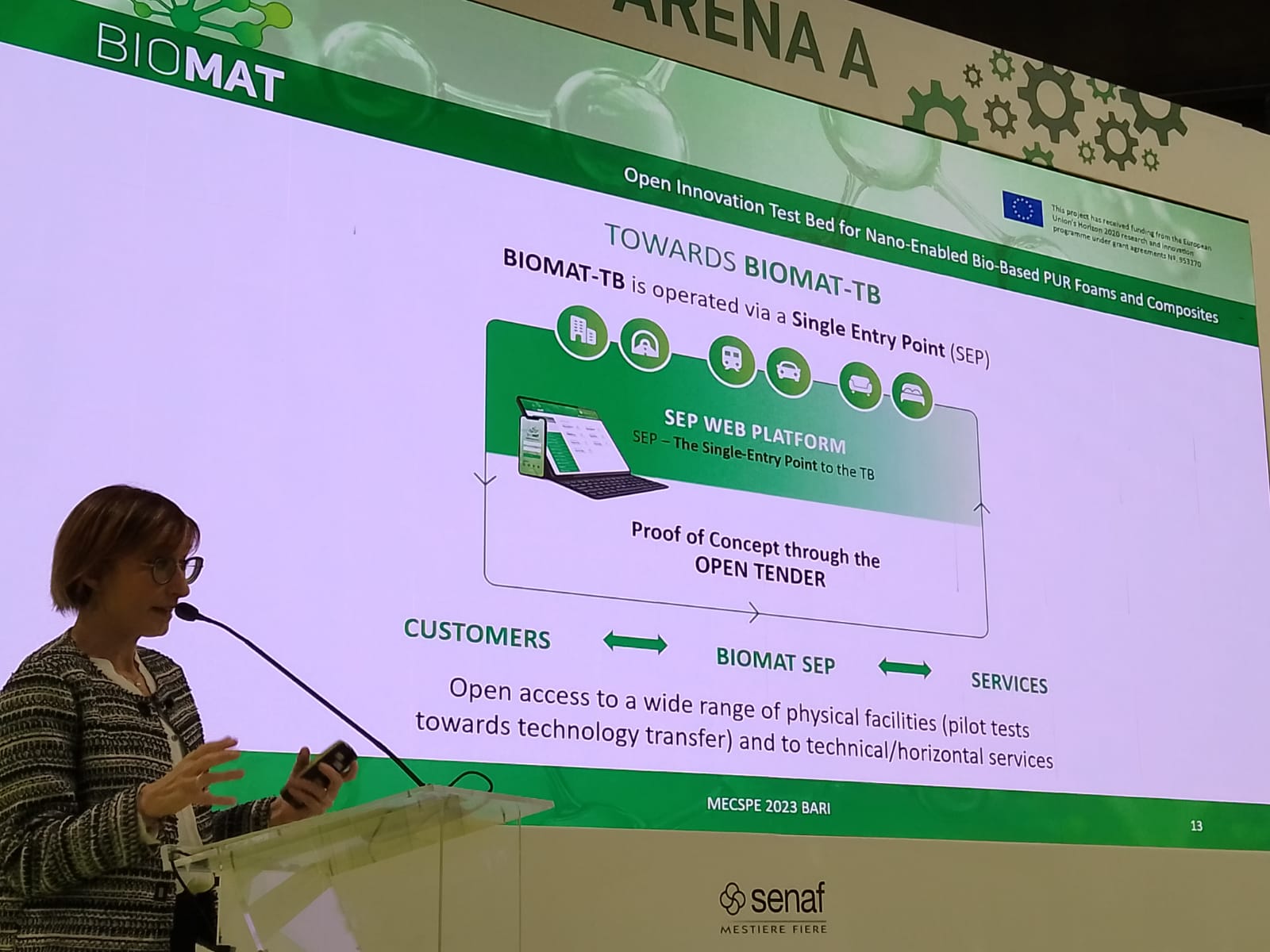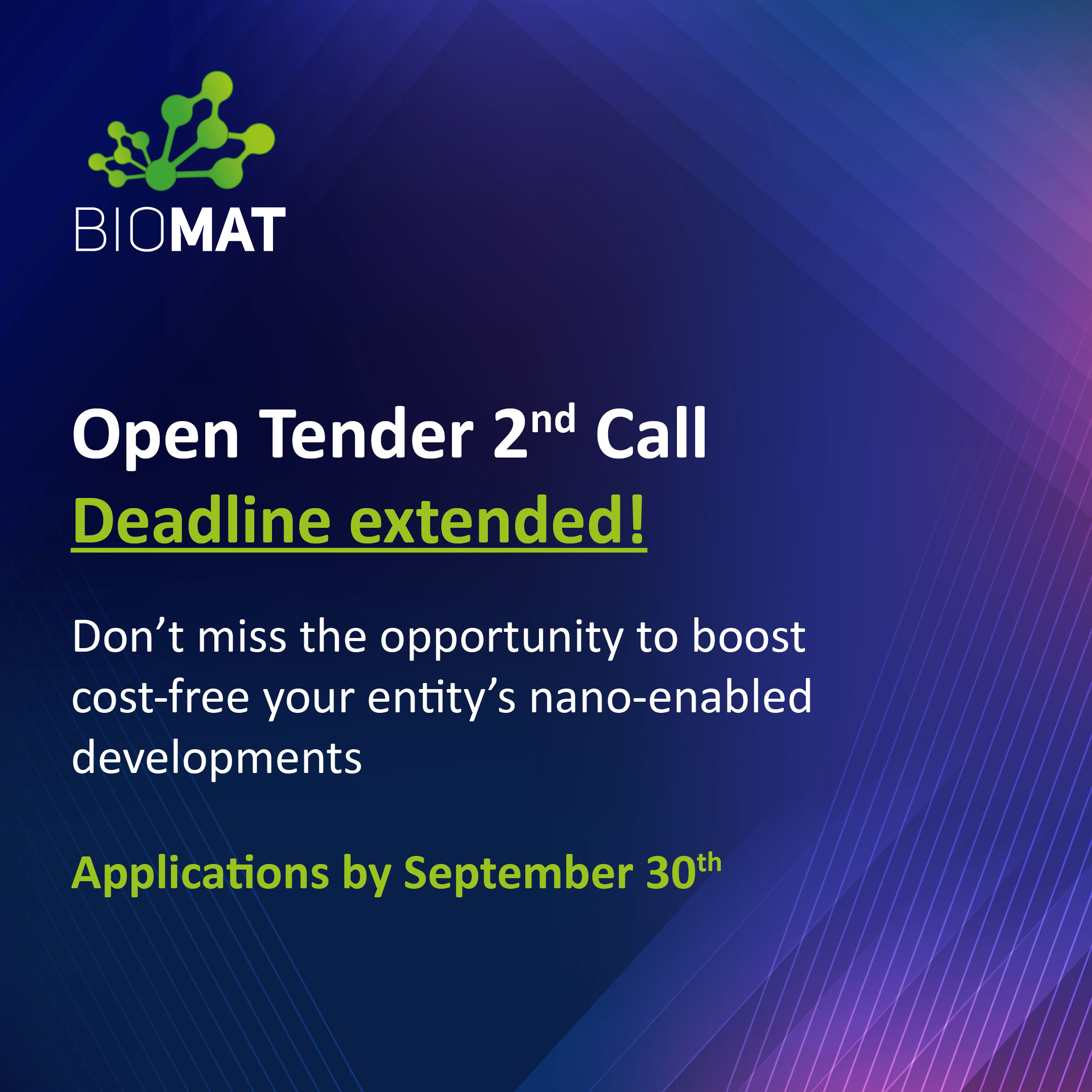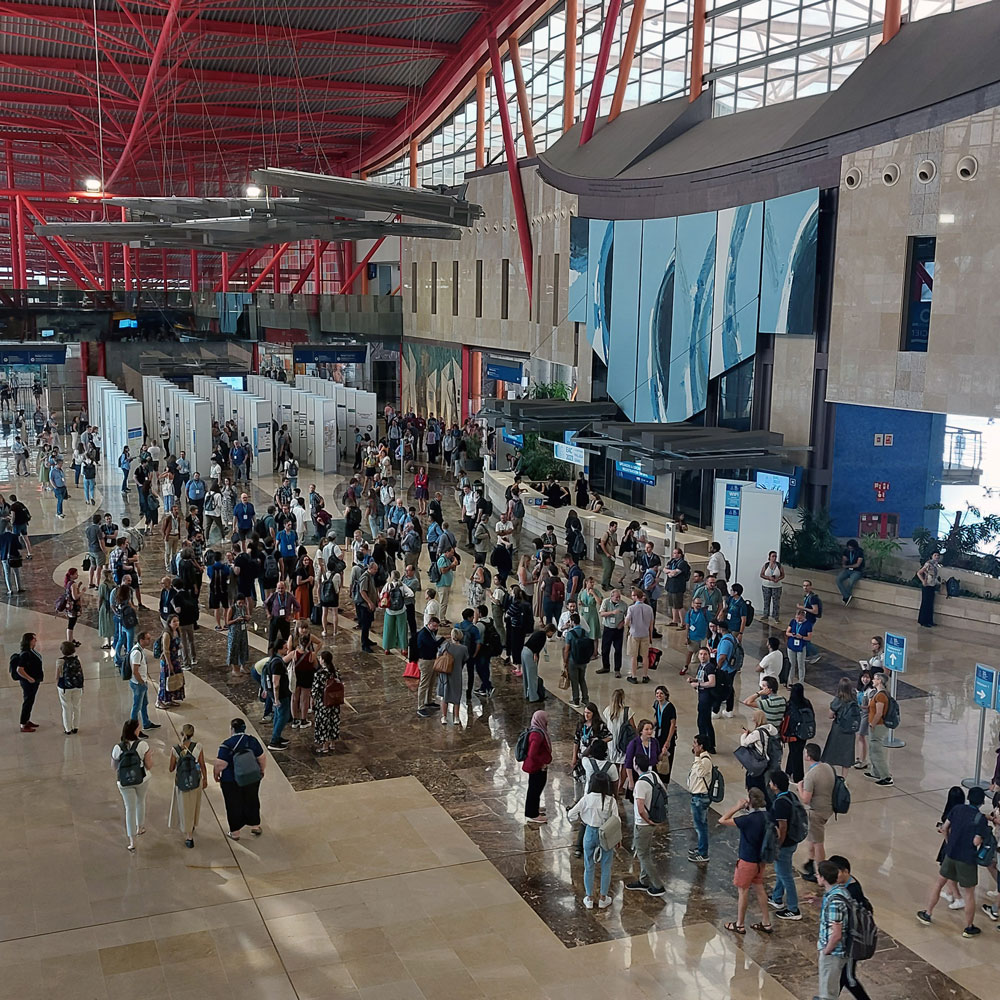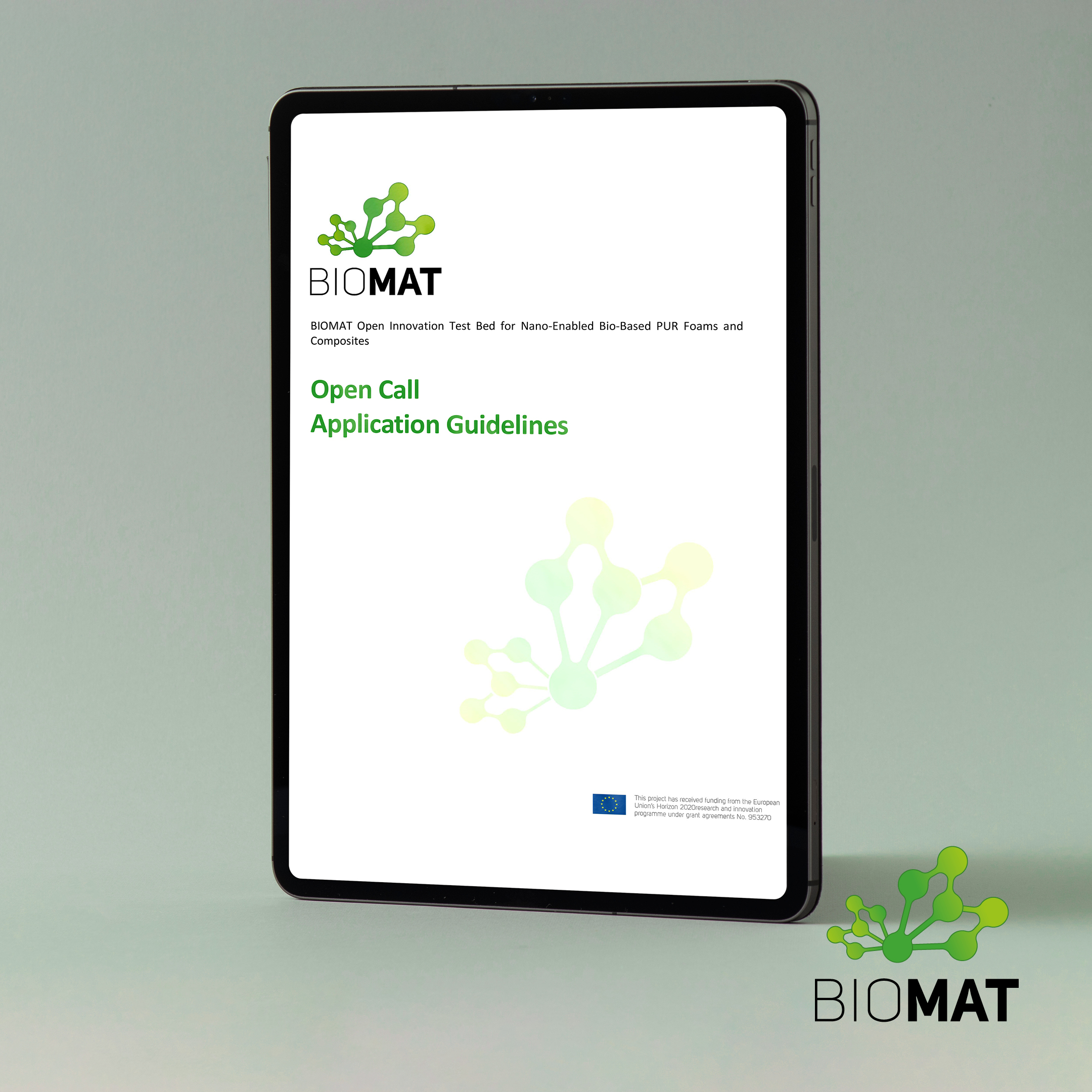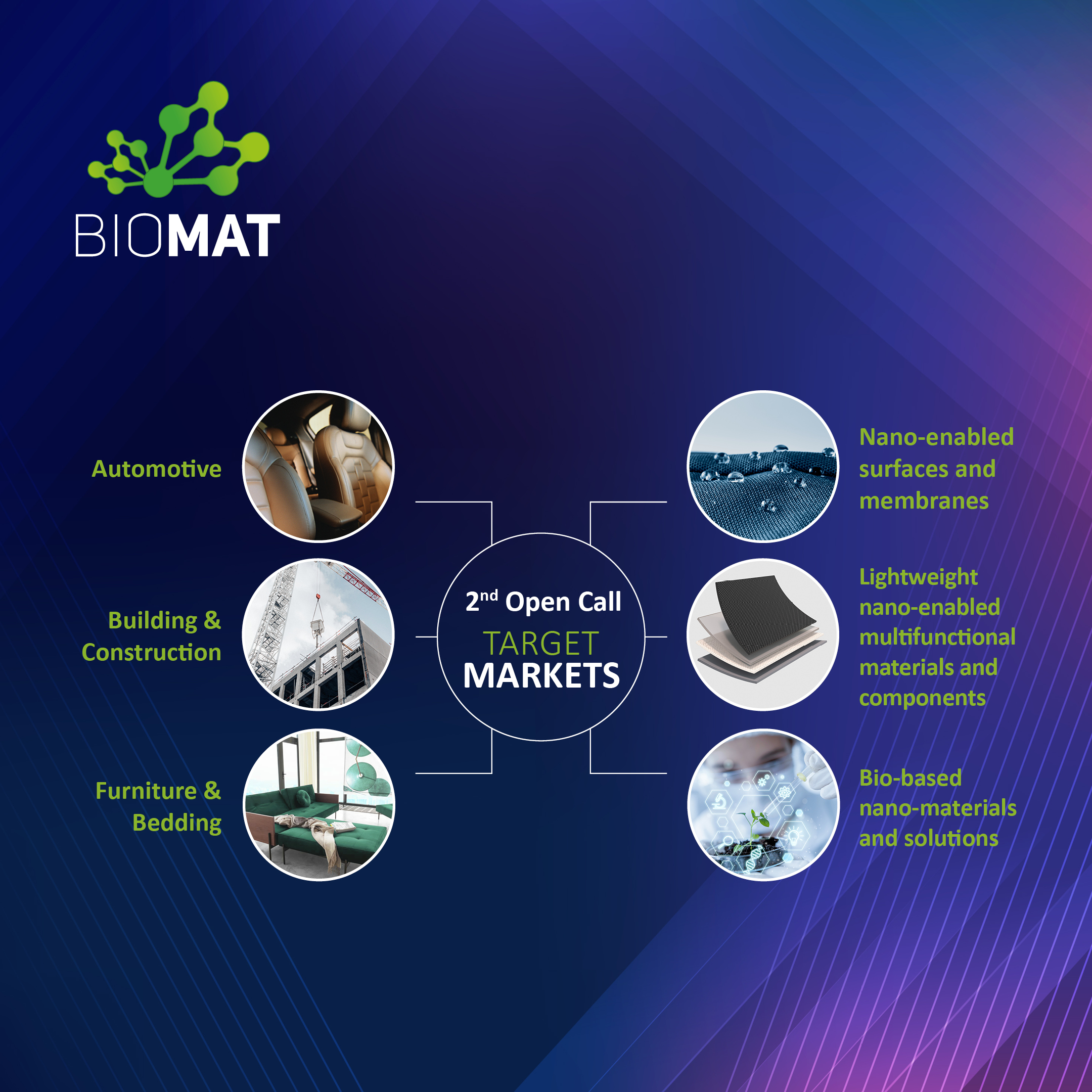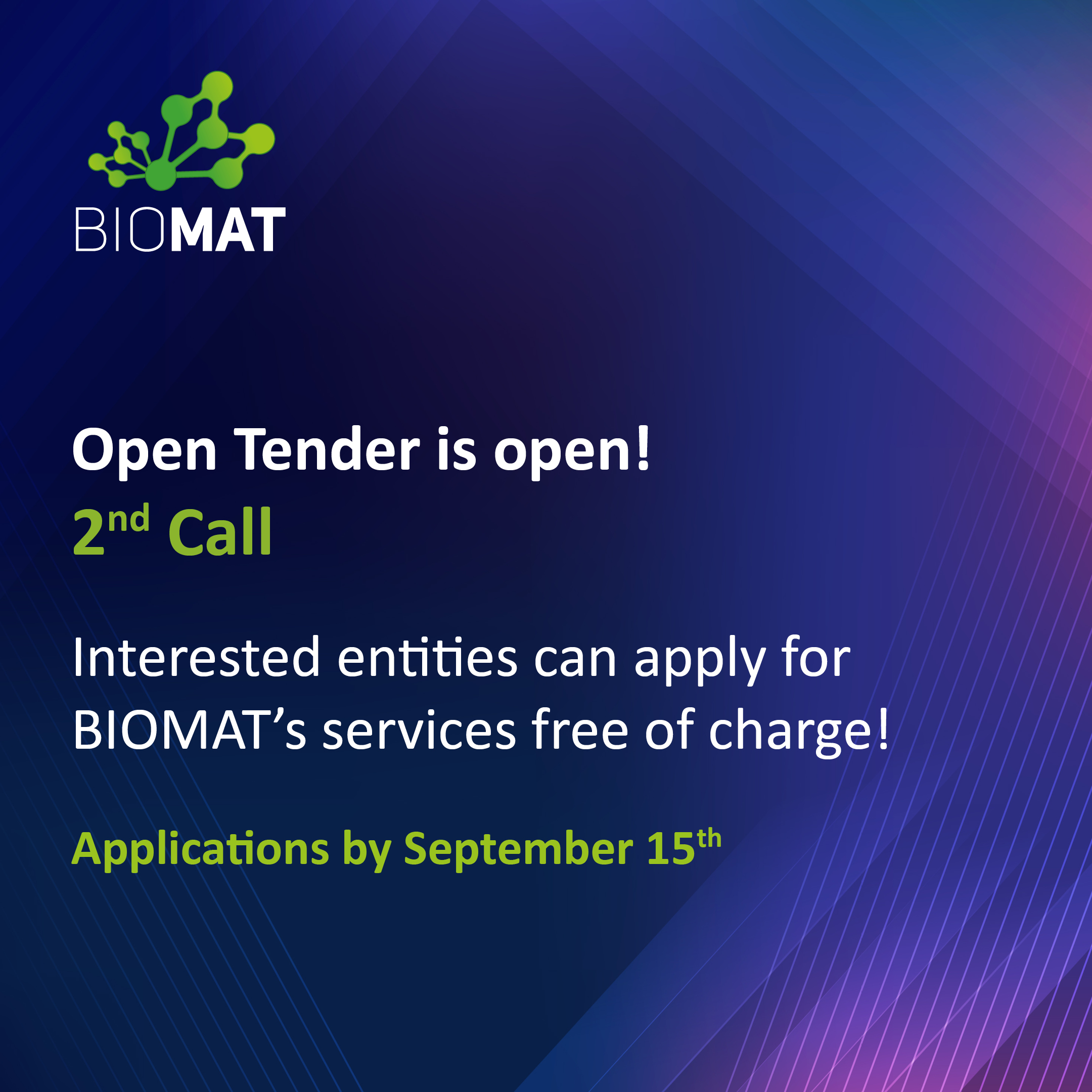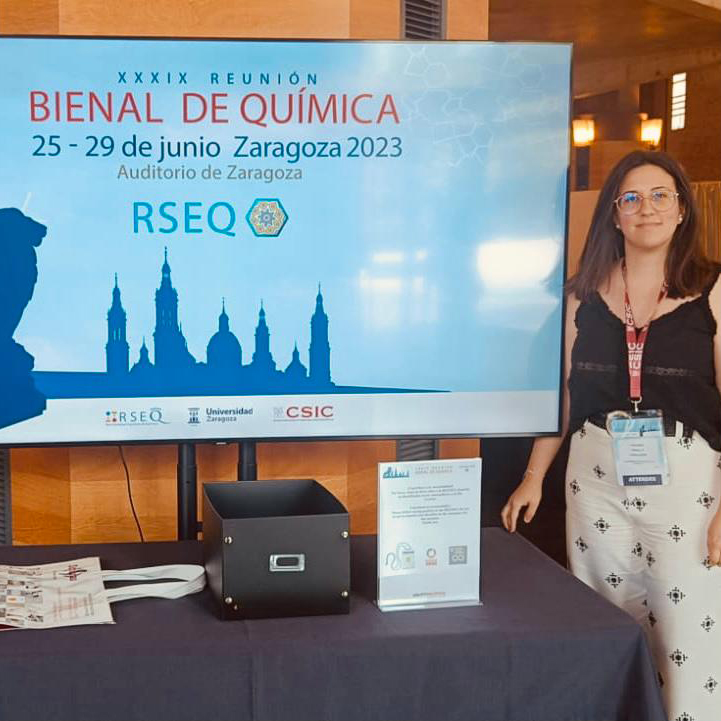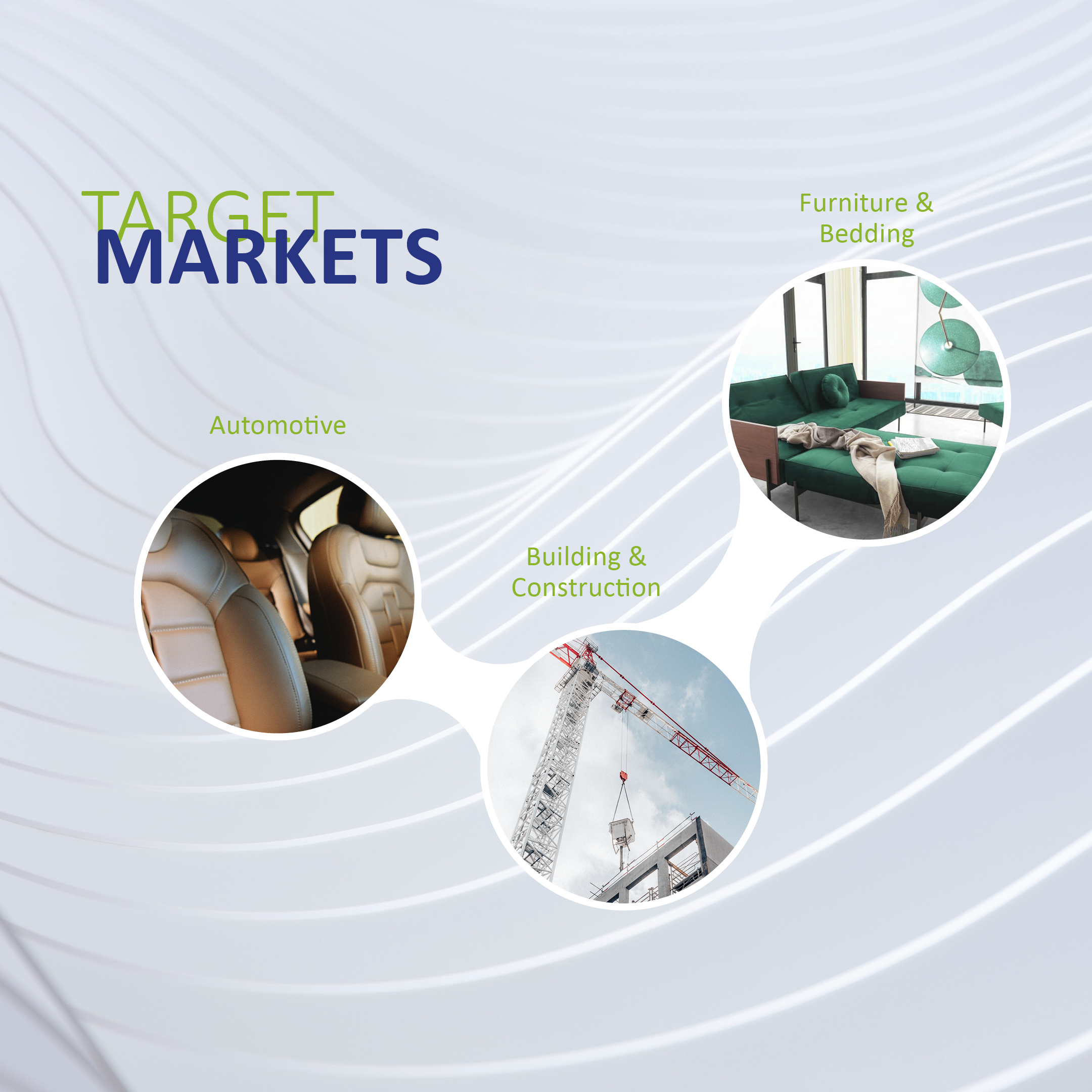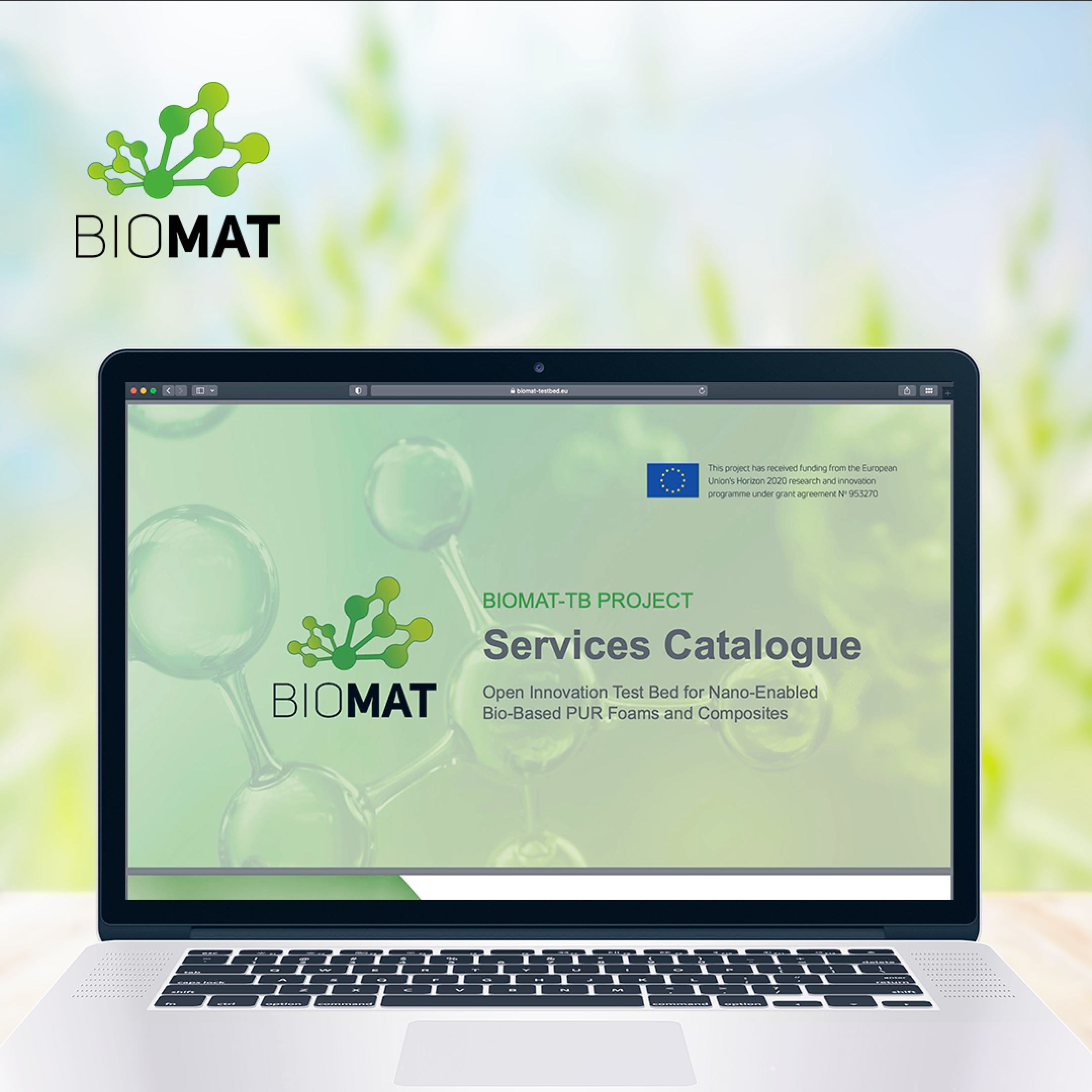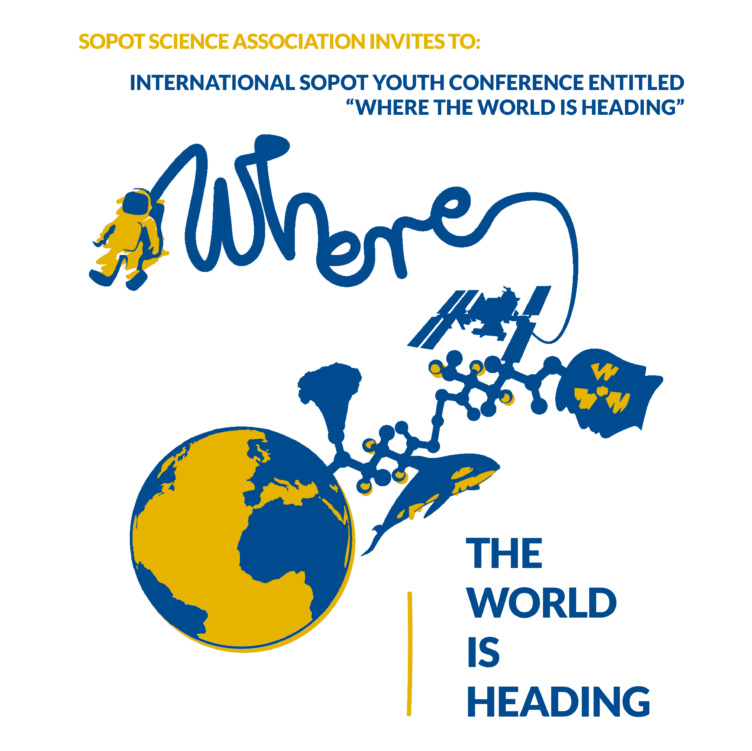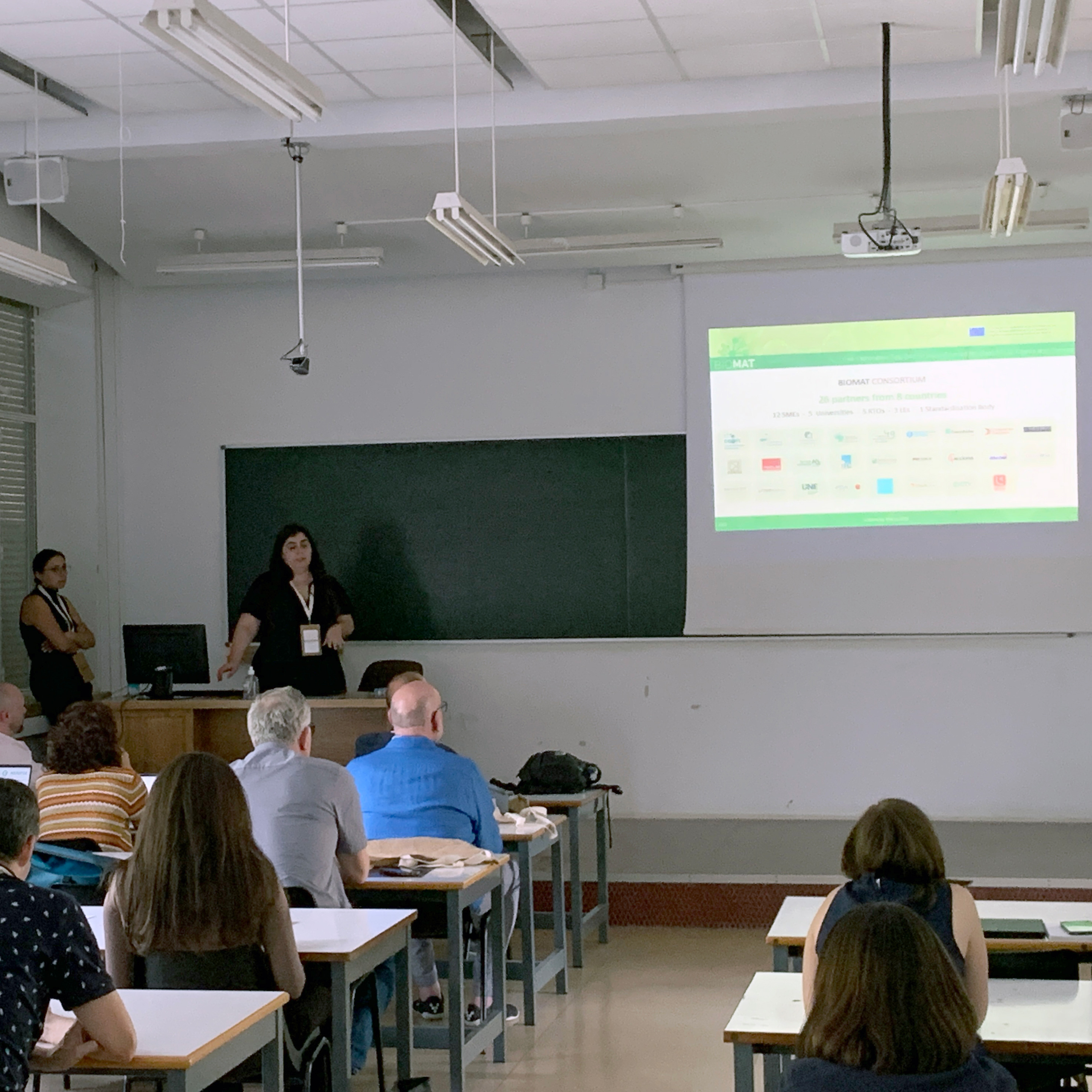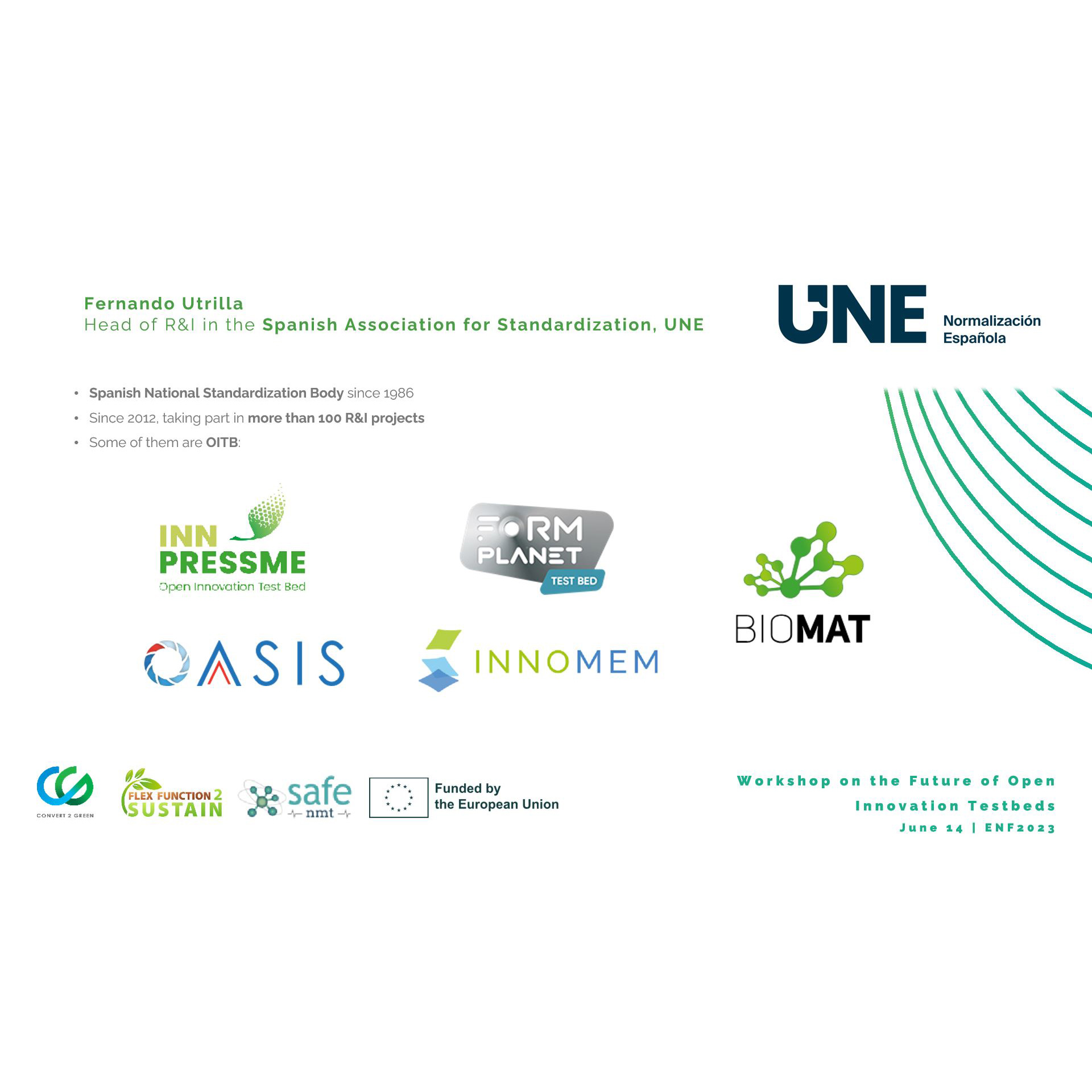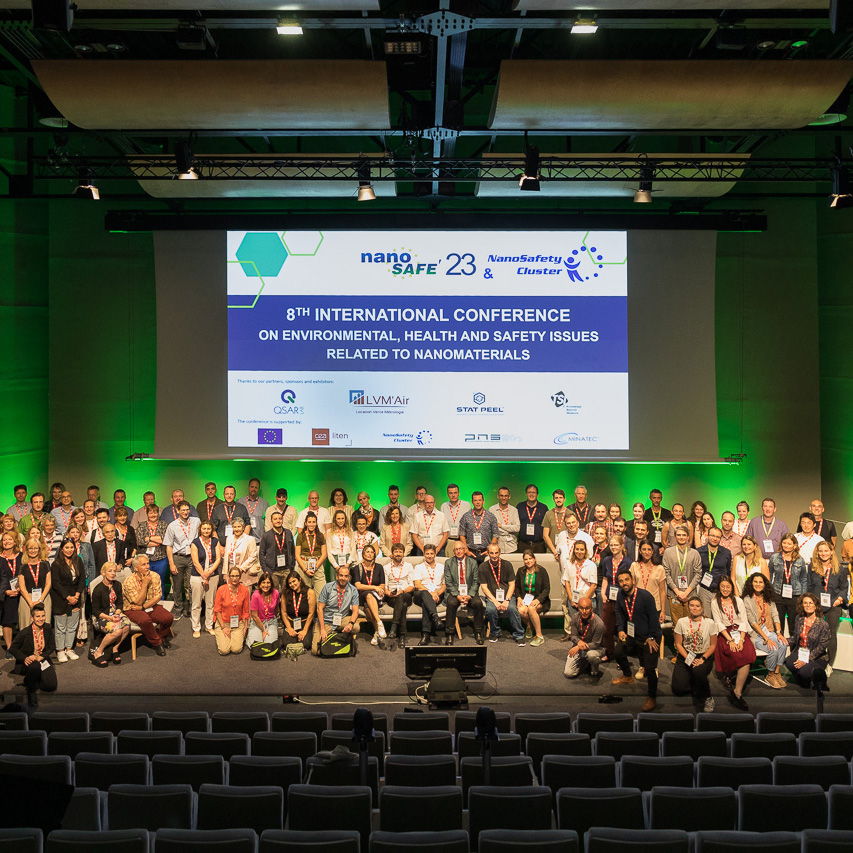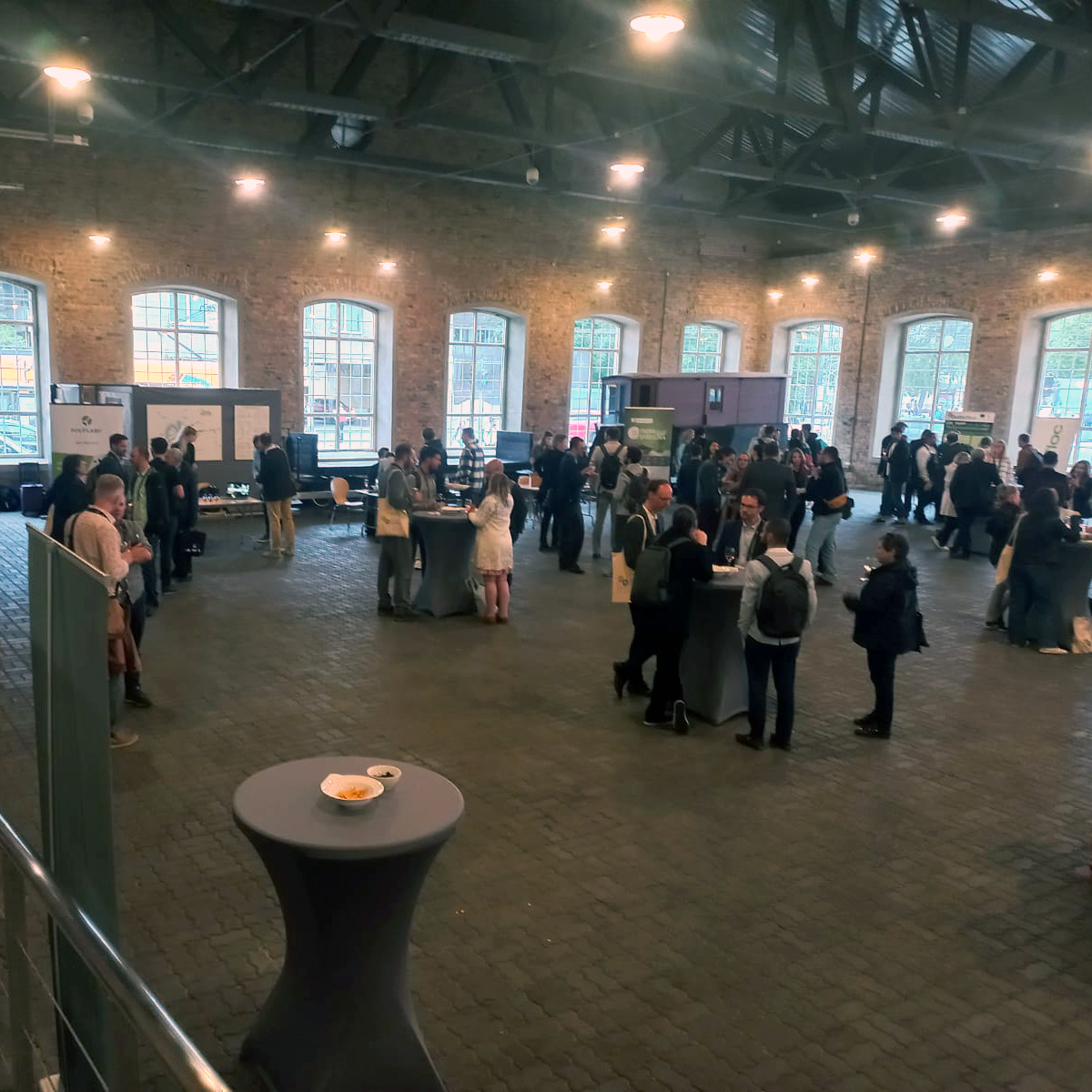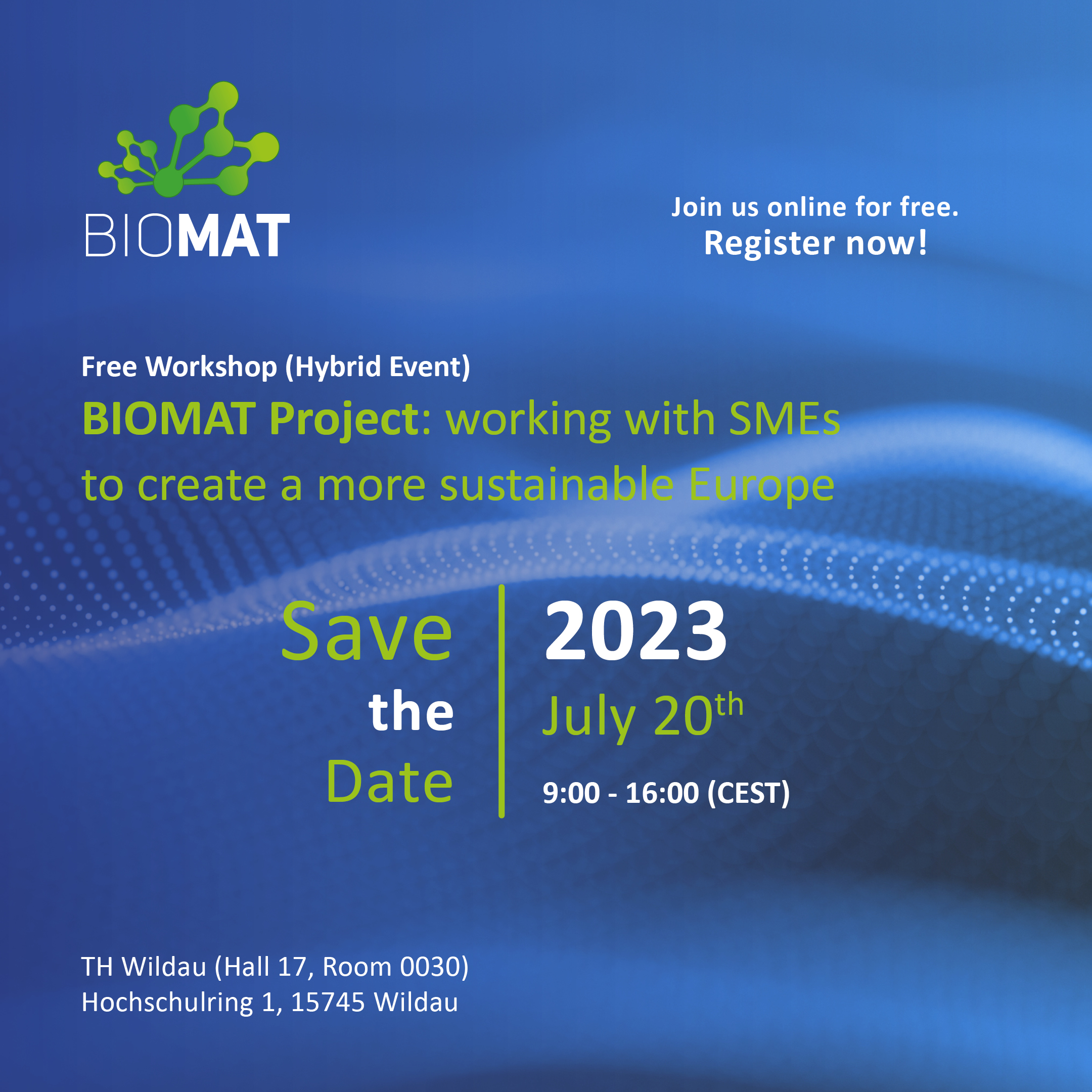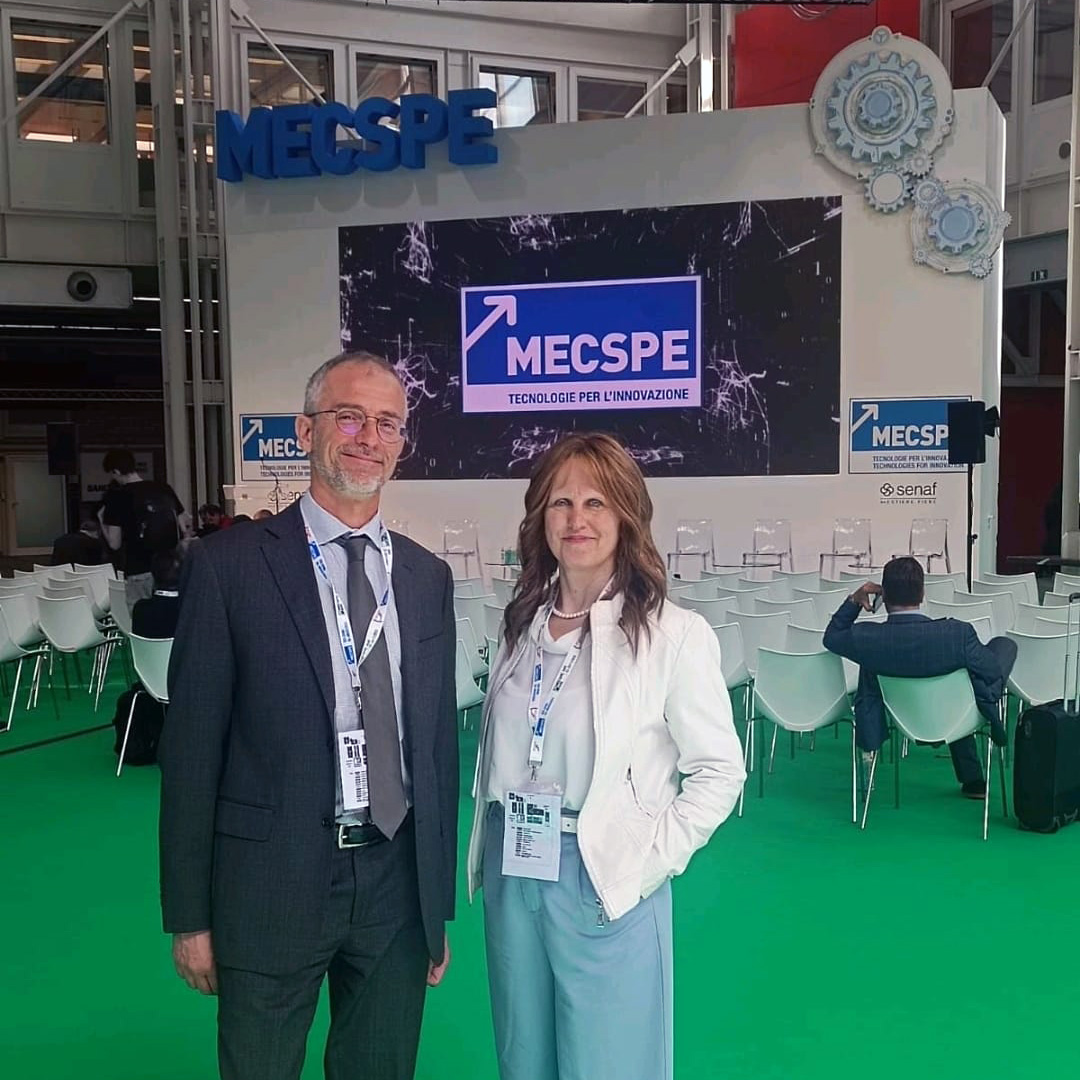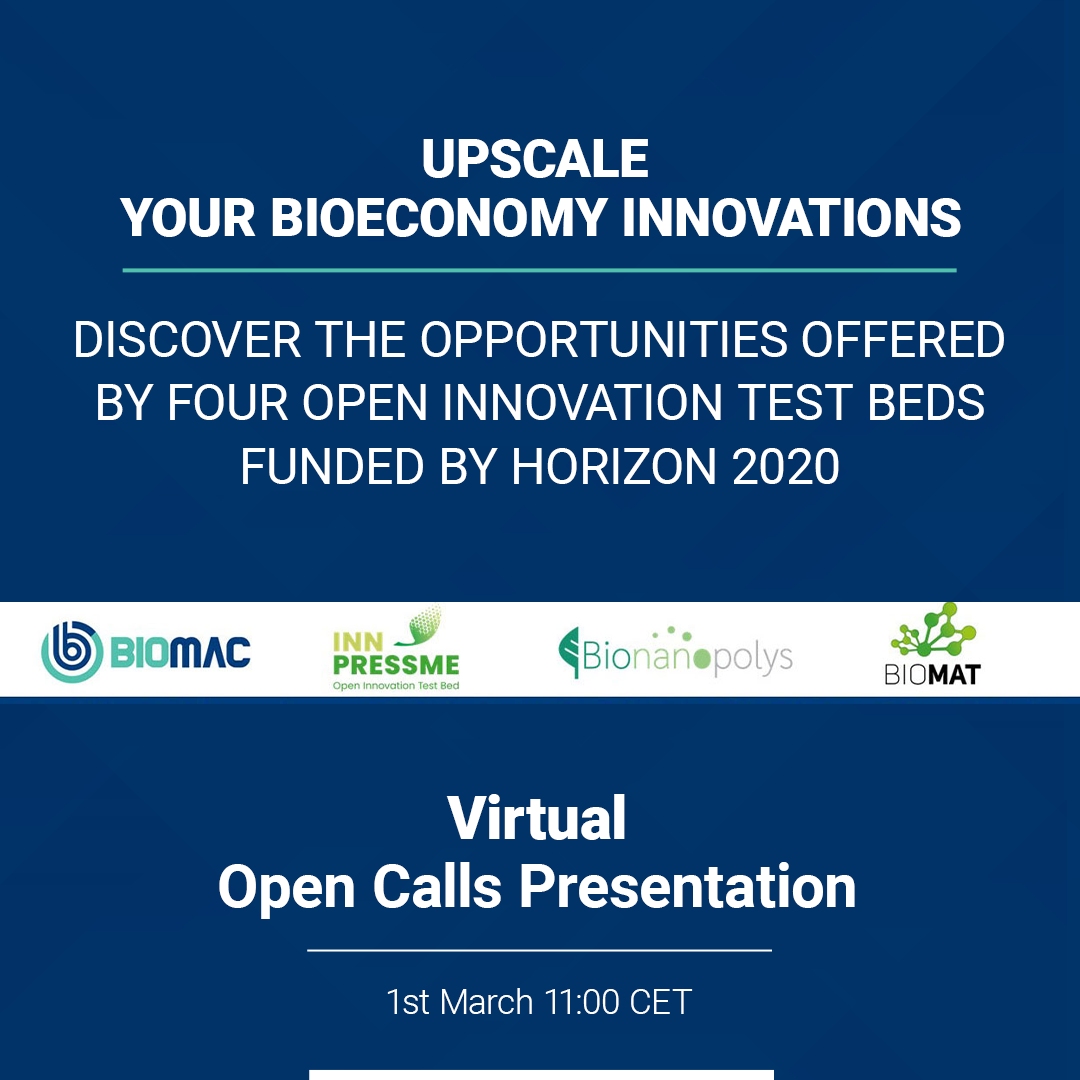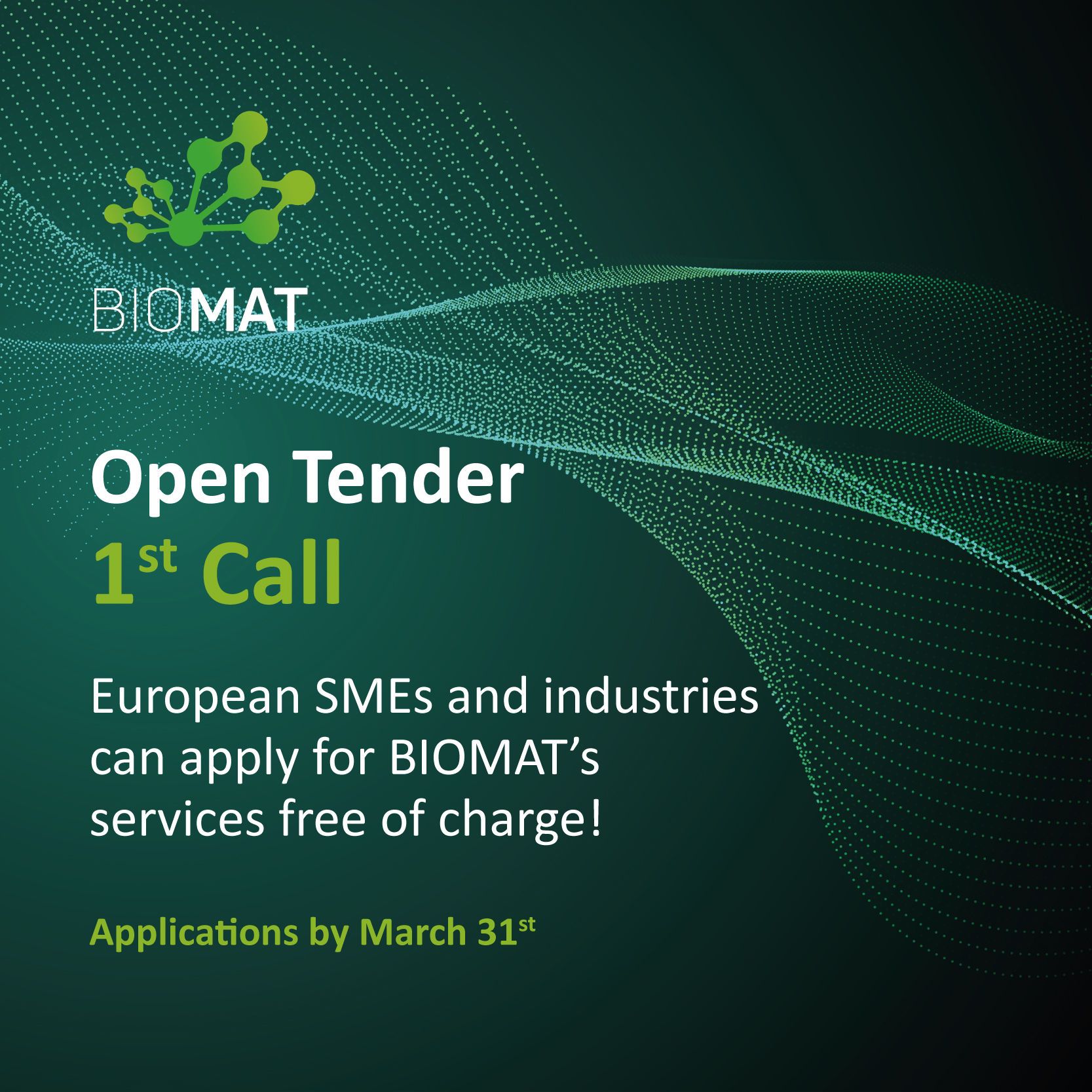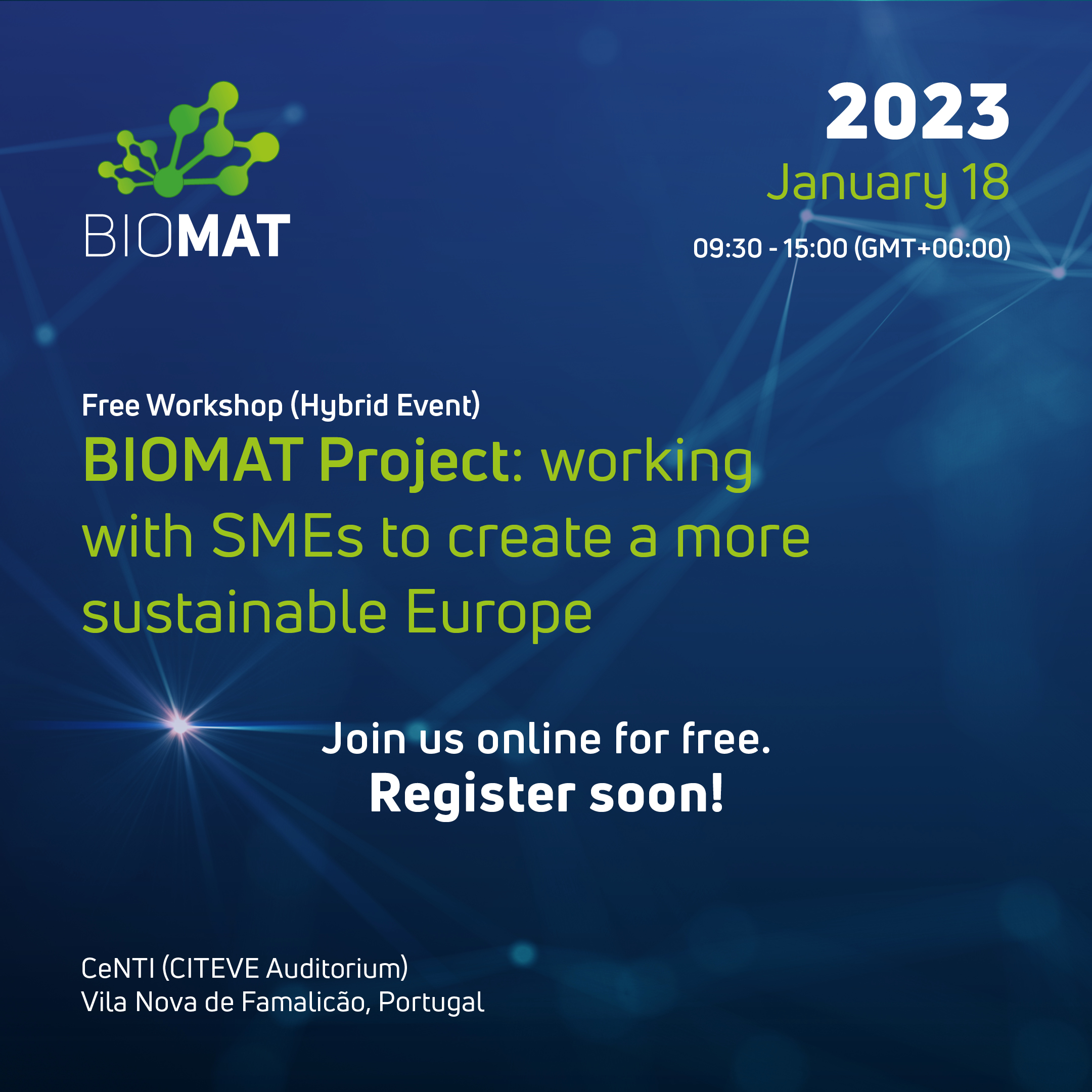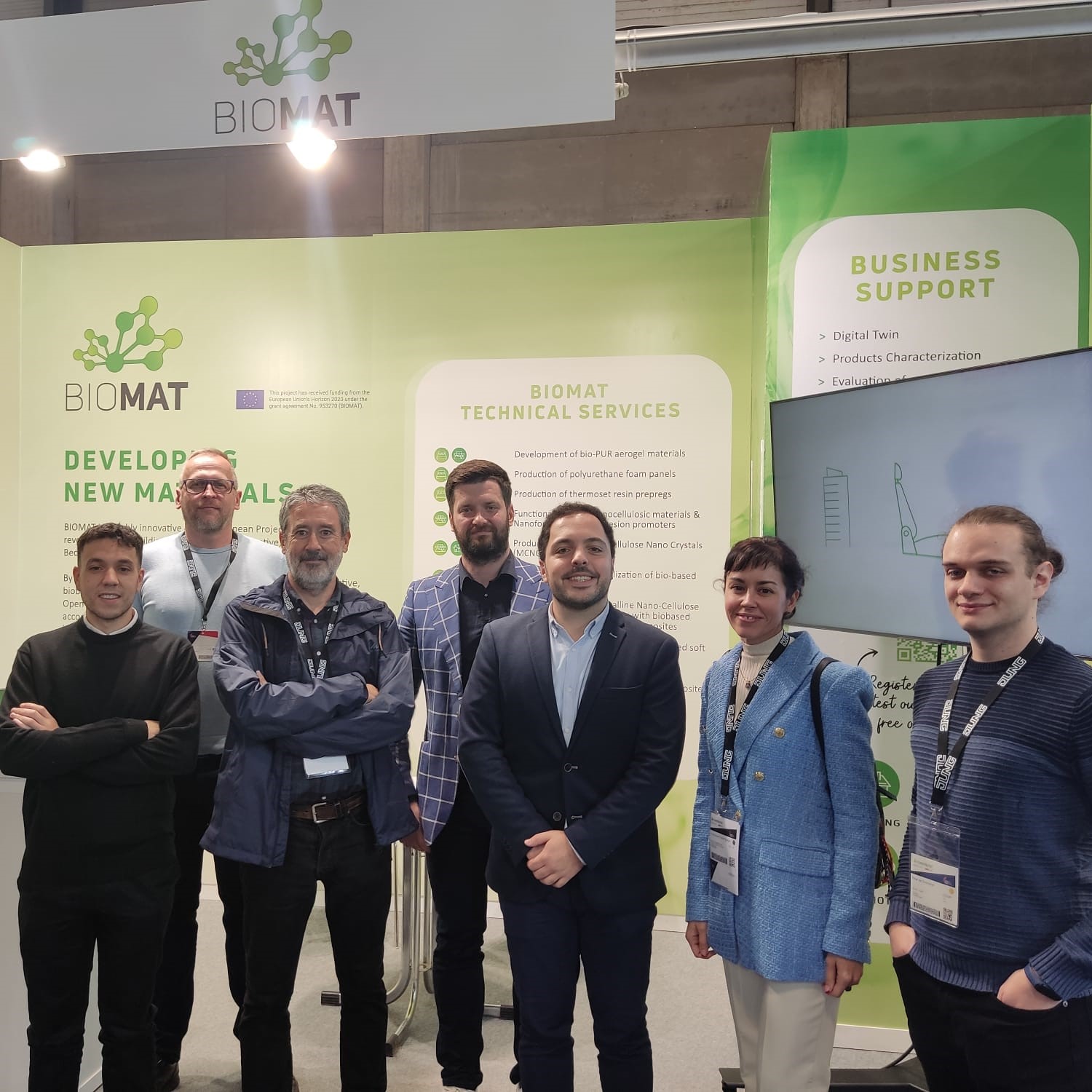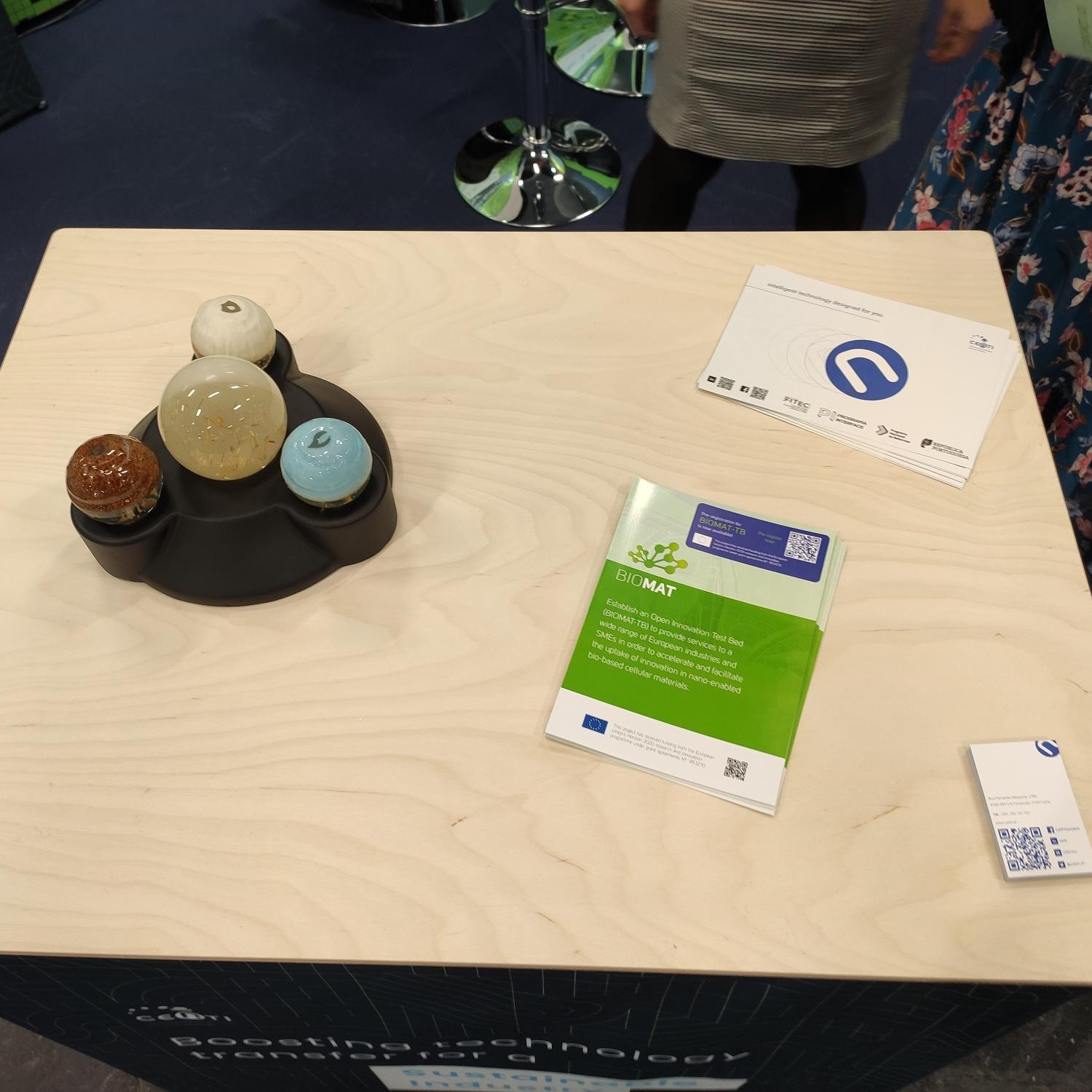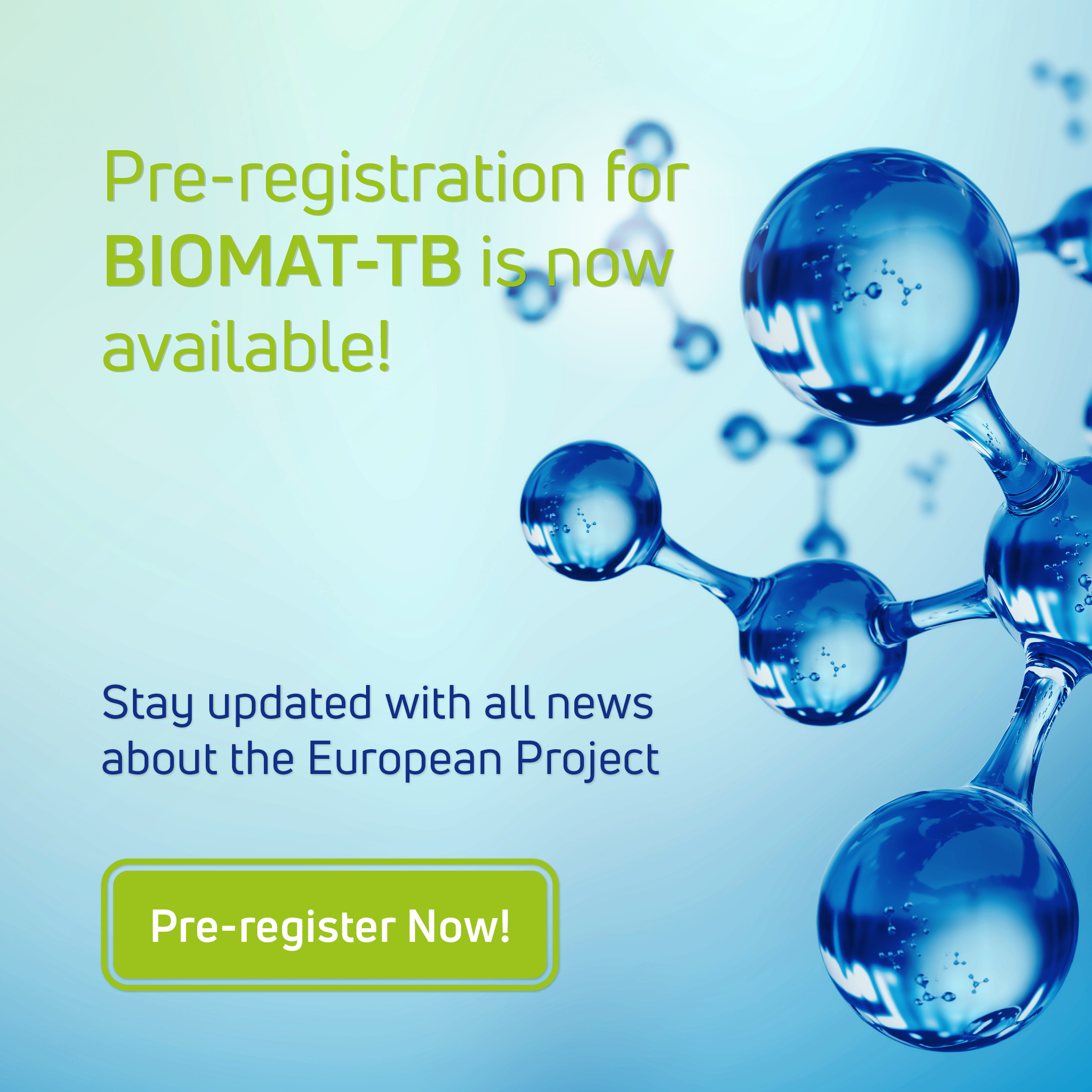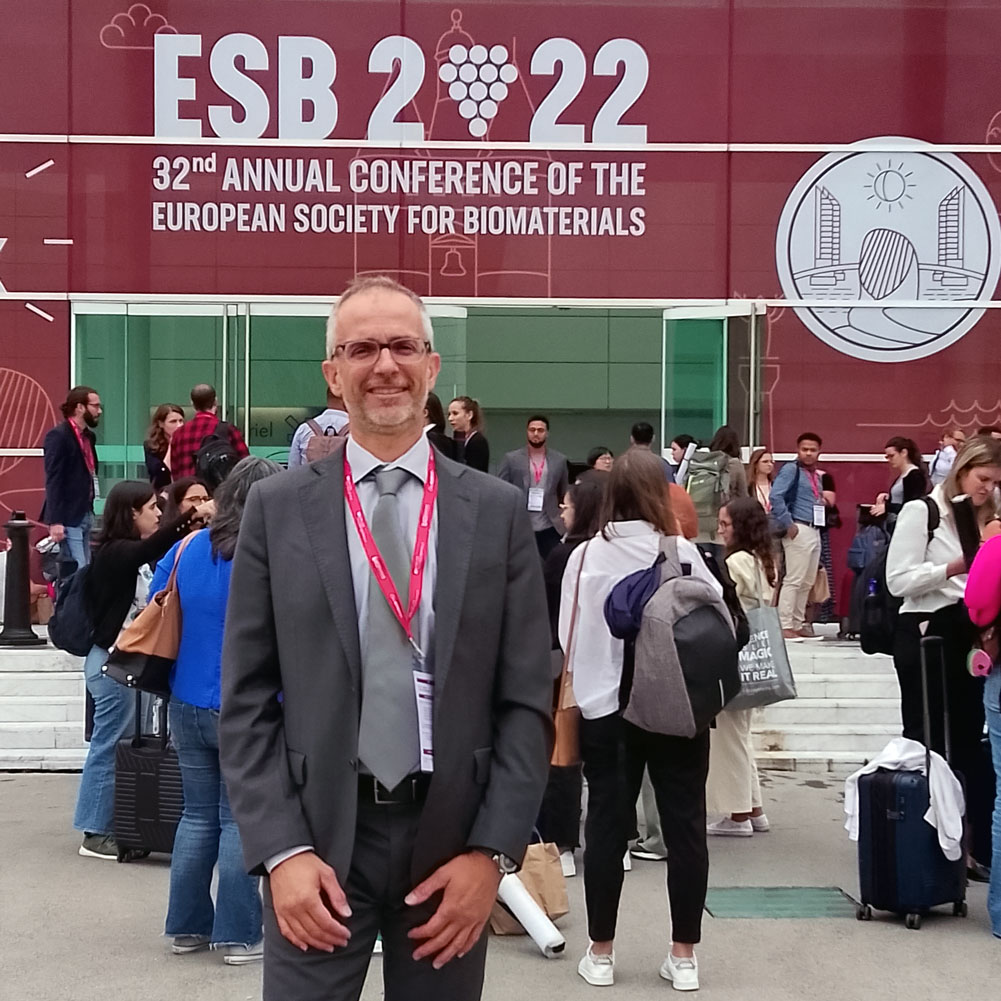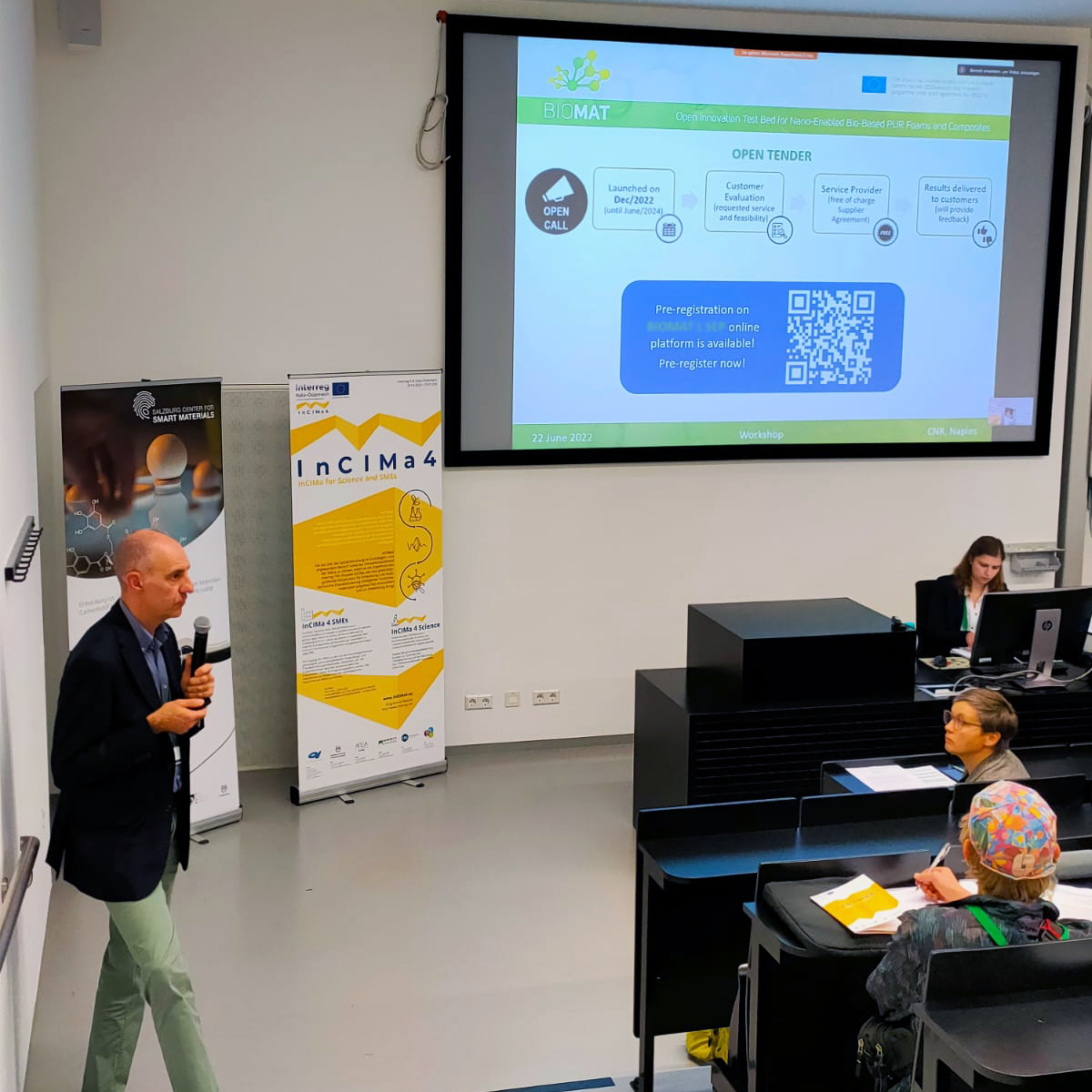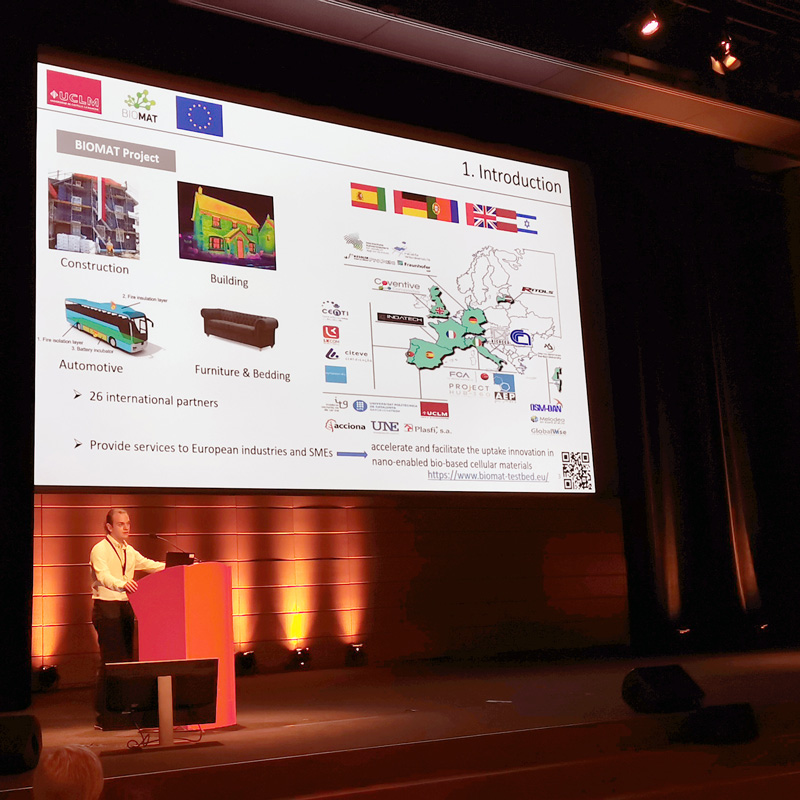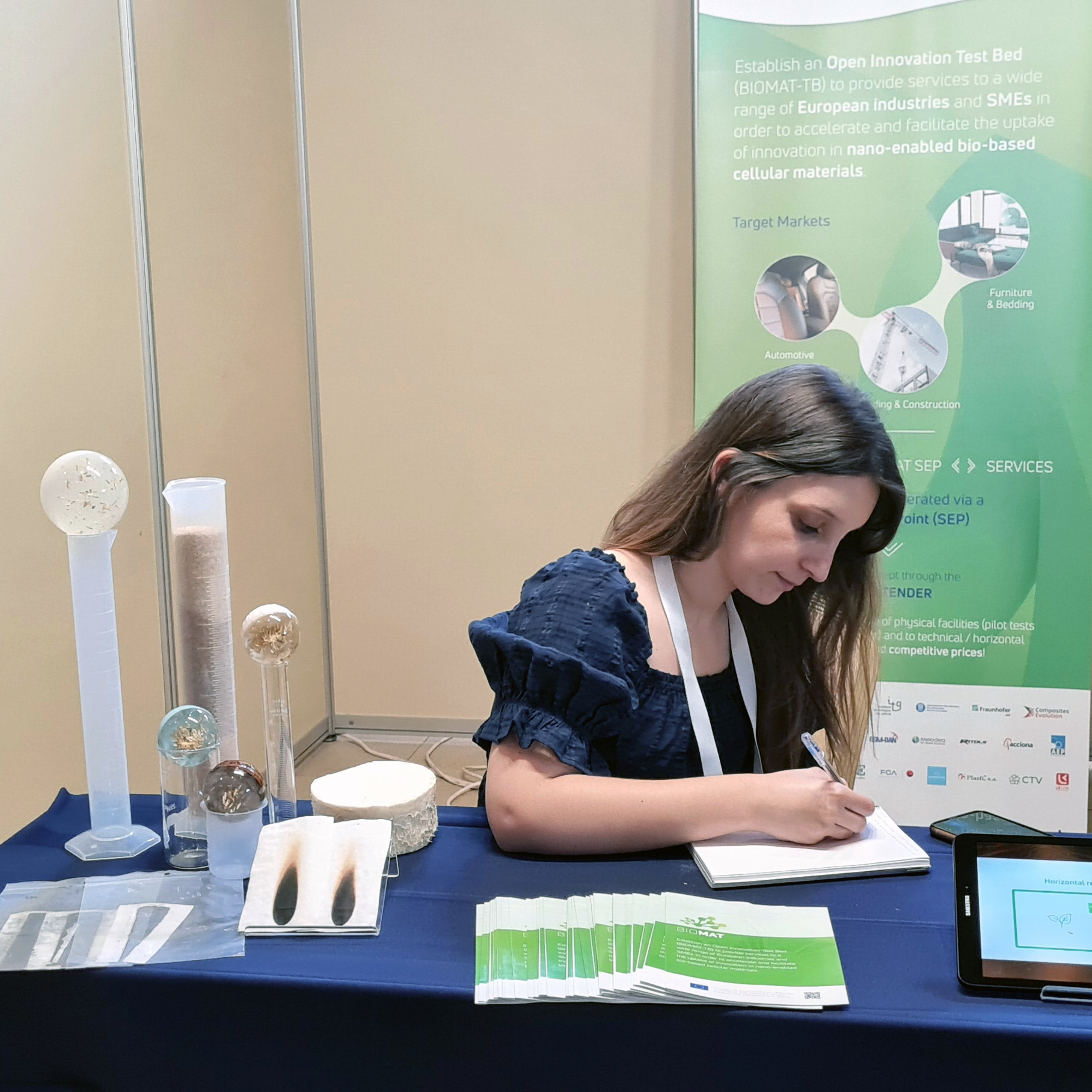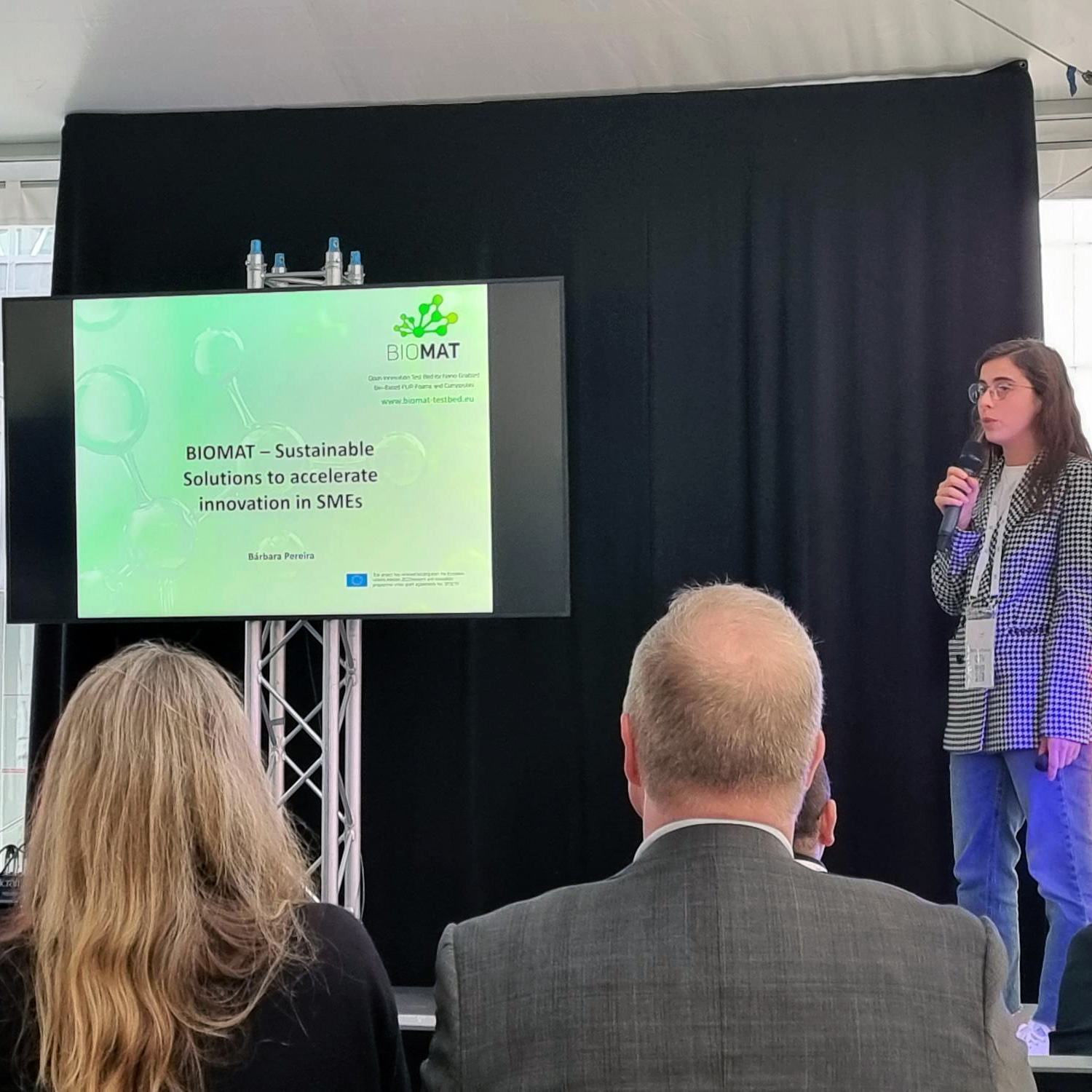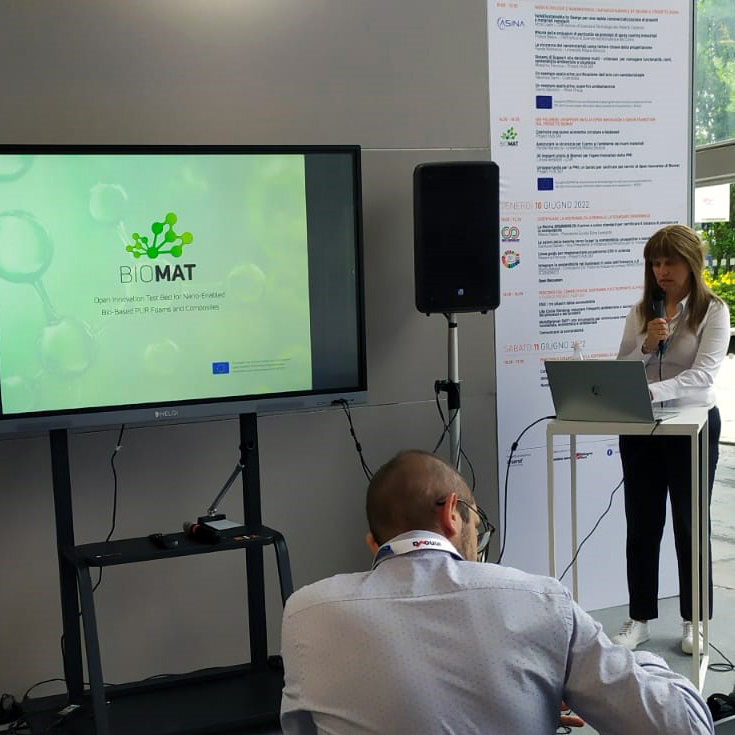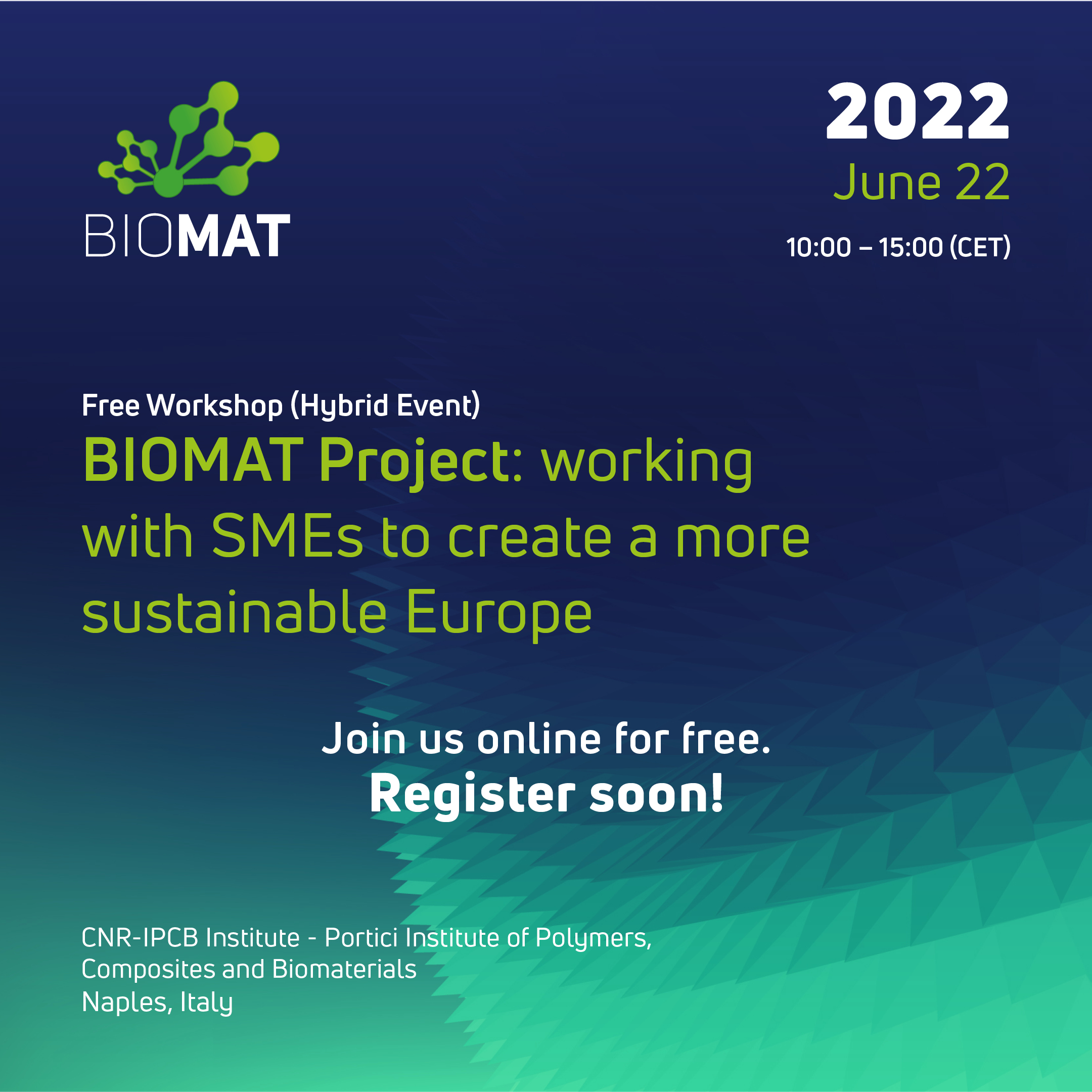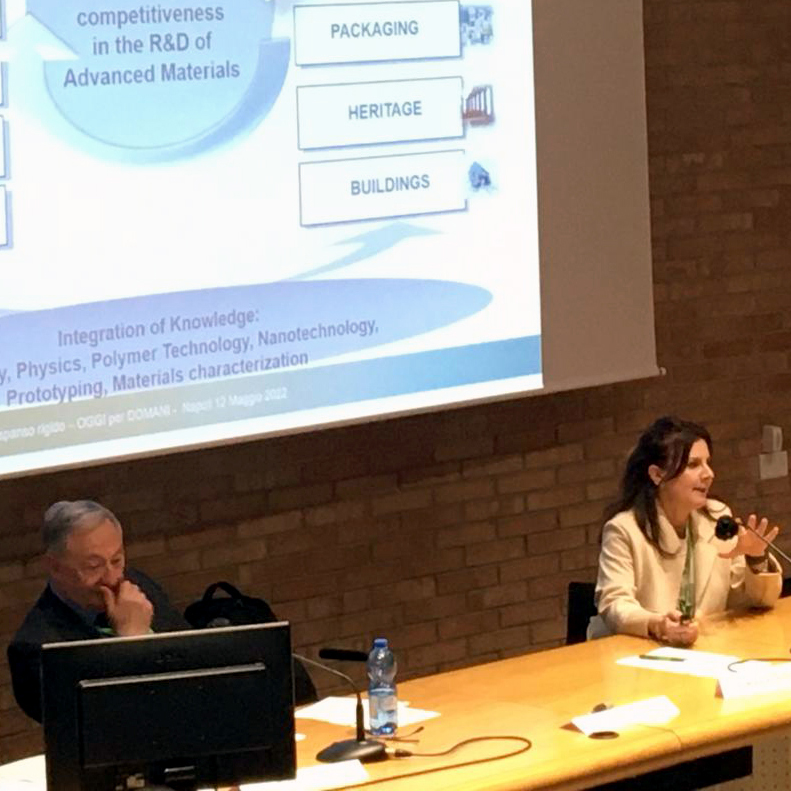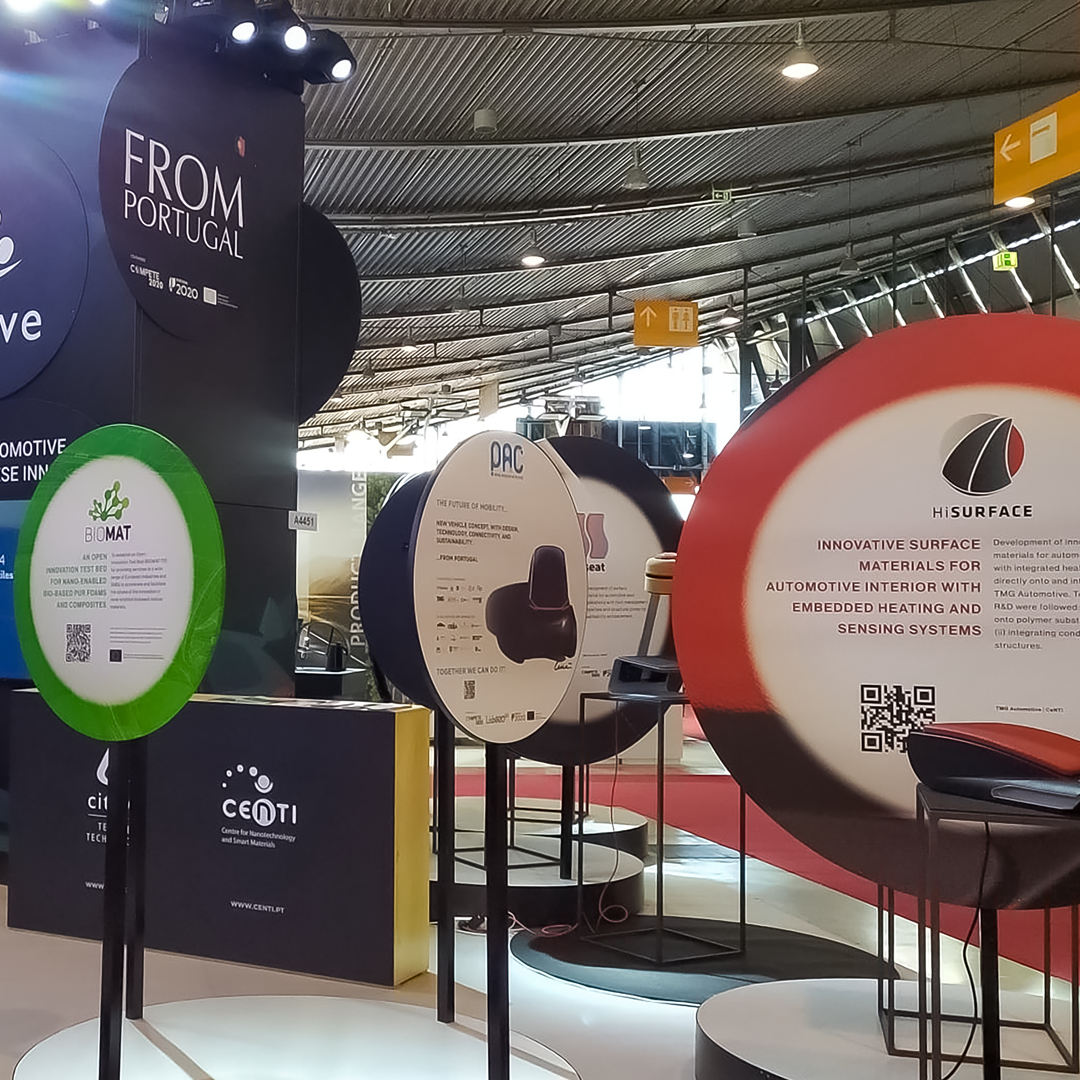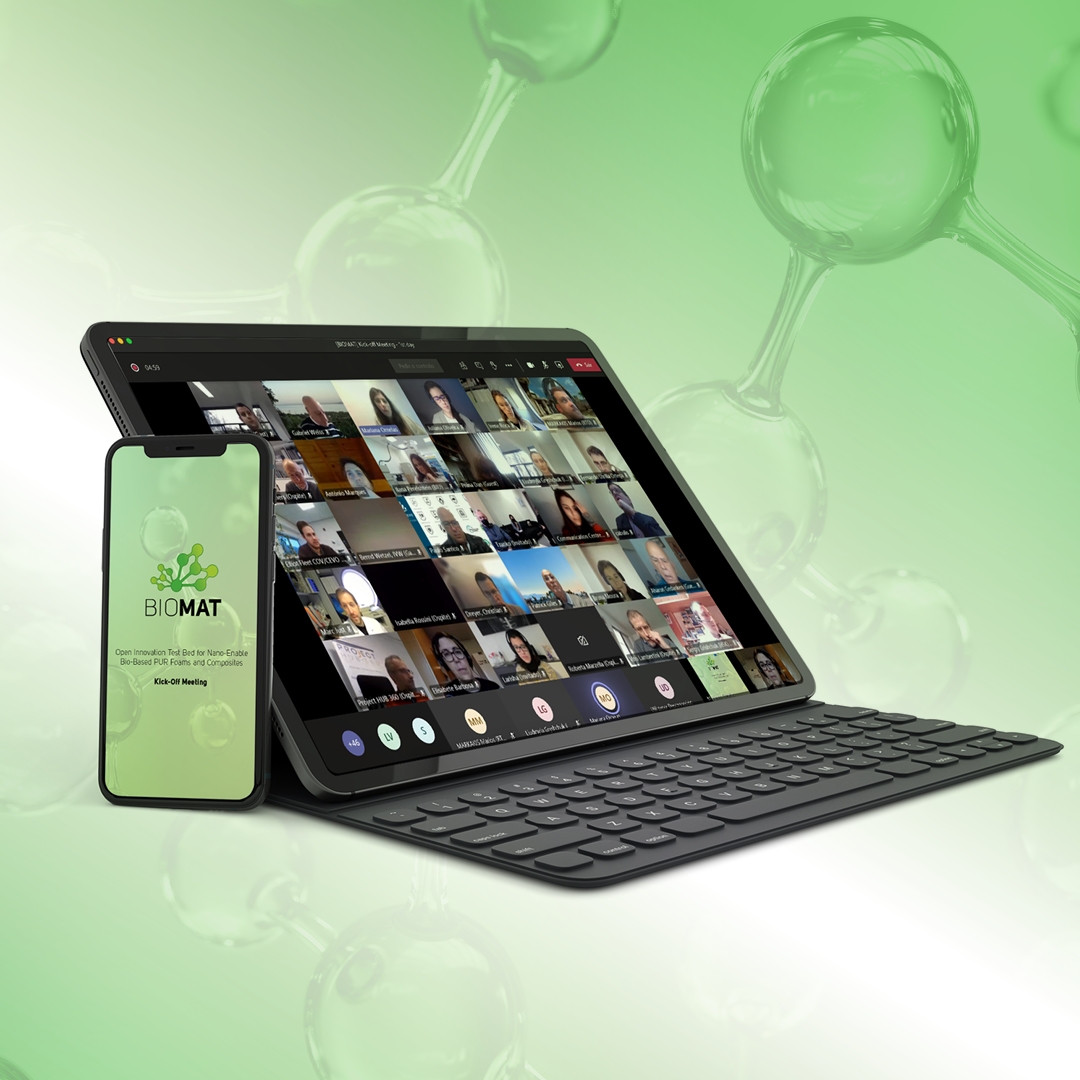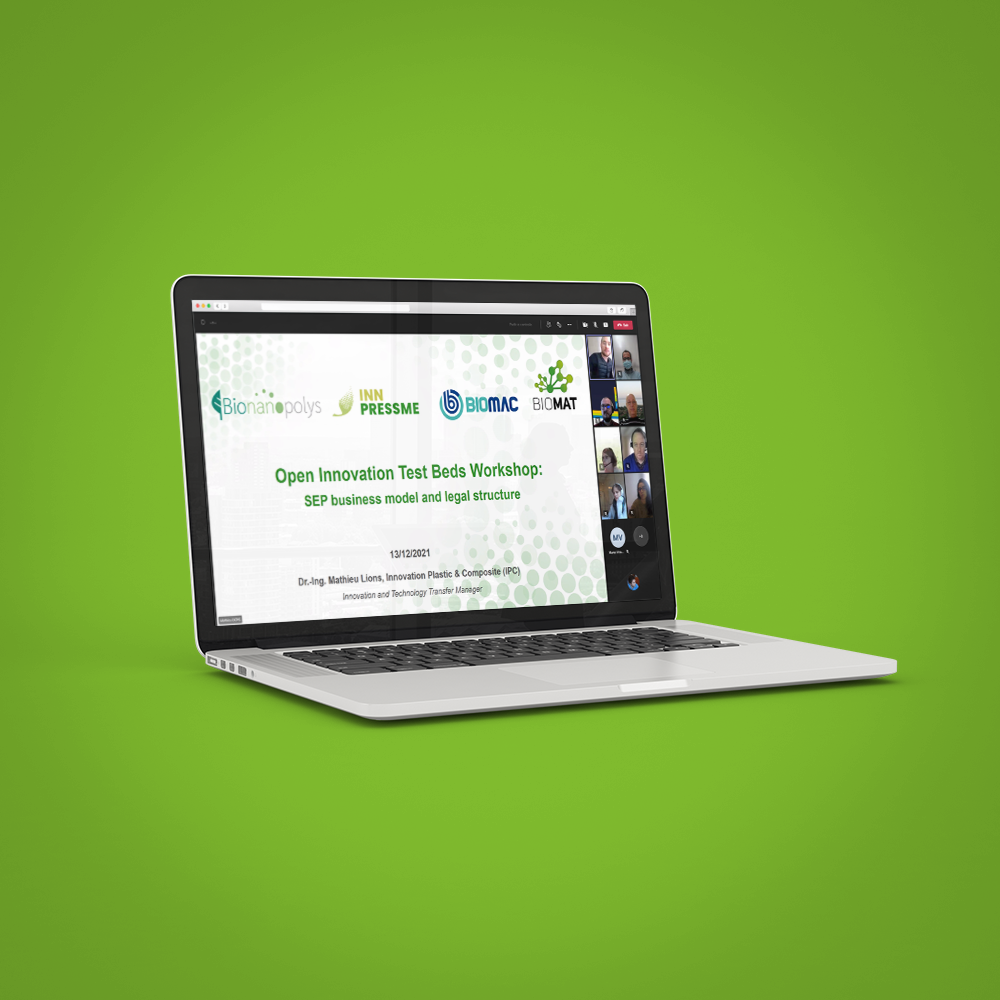
What are the Single-Entry Point (SEP) implementation challenges on Open Innovation Test Beds? To understand this, on Monday, December 13th, IN-PRESSME Project promoted an online workshop which included three other OITB projects to discuss the signs of progress on the SEP implementation under the motto “SEP business model and legal structure”, and BIOMAT was there!
The aim was to get advantage from the practice of these similar projects and collaborate were possible, enhancing the impact of this type of collaborative projects funded by the EU.
At this session, BIOMAT Project presented its SEP, which will be operated by the partner CTV- Certificação de Têxteis e de Vestuário. It will offer open access to physical facilities (pilots for production and technology transfer) and associated services (e.g. digital twin pilots, product characterisation, business/marketing plans, etc.) at fair conditions and cost, applying strategic and competitive prices.
Interested parties will access BIOMAT’s services and technologies via the SEP, which will act as a legal profit entity and will centralise different services, covering the entire value chain from basic biomaterials and functional nanoparticles to the final products and their evaluation in an industrial environment.
The other Test Bed projects (INN-PRESSME, BIOMAC, and BIONANOPOLYS) which attended the session shared their challenges related to the Single-Entry Point implementation. This was the second time that these four OITB’s gathered! The first time was in October, where the Test Beds shared their views related to their services that should empower SMEs to accelerate market access to nano-enabled biomaterials.














